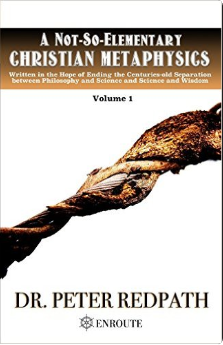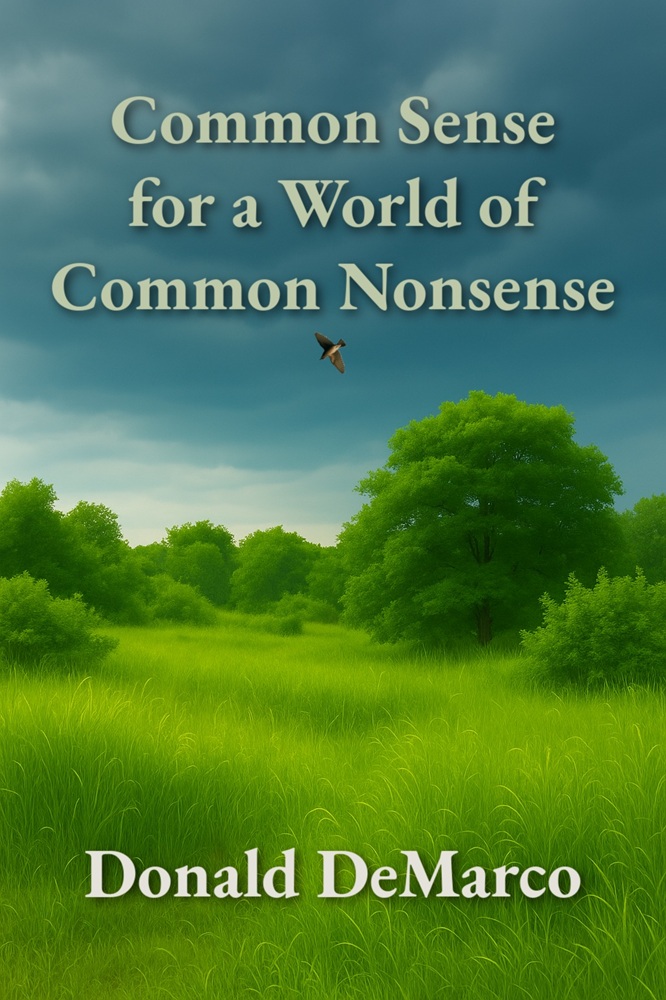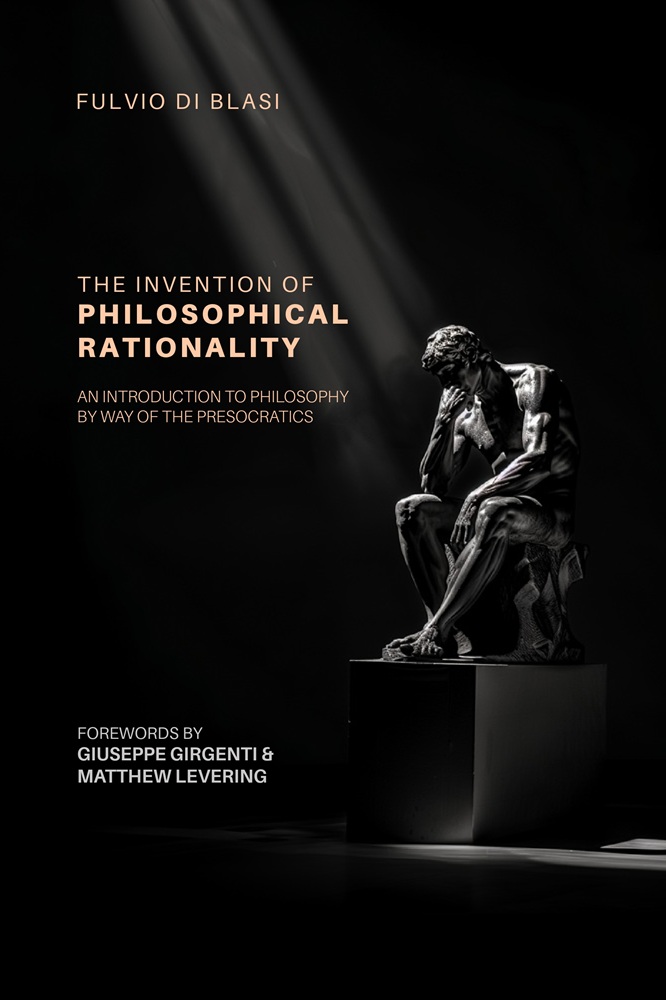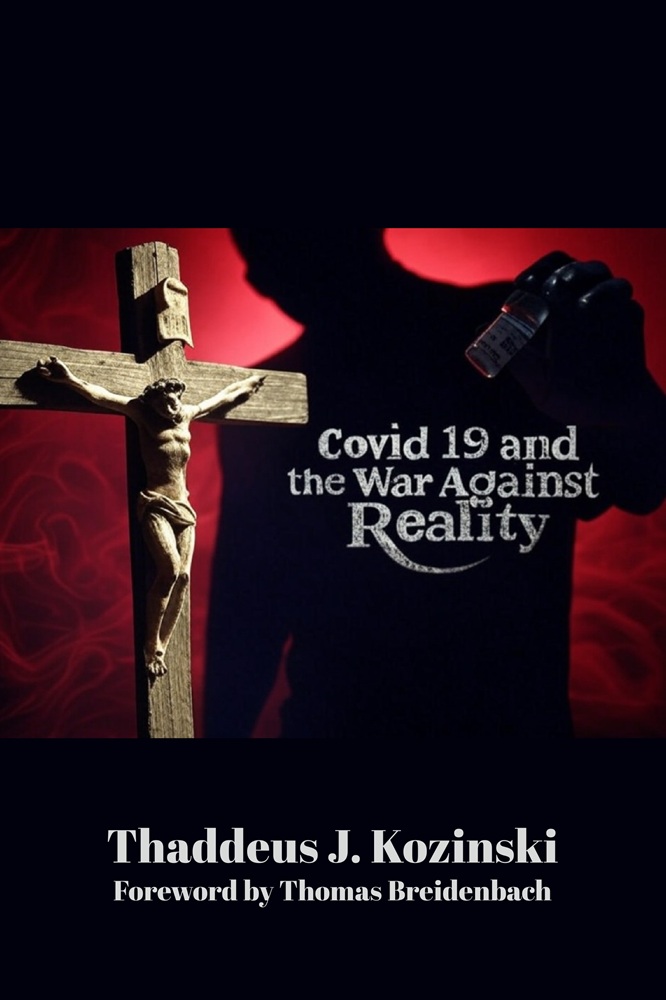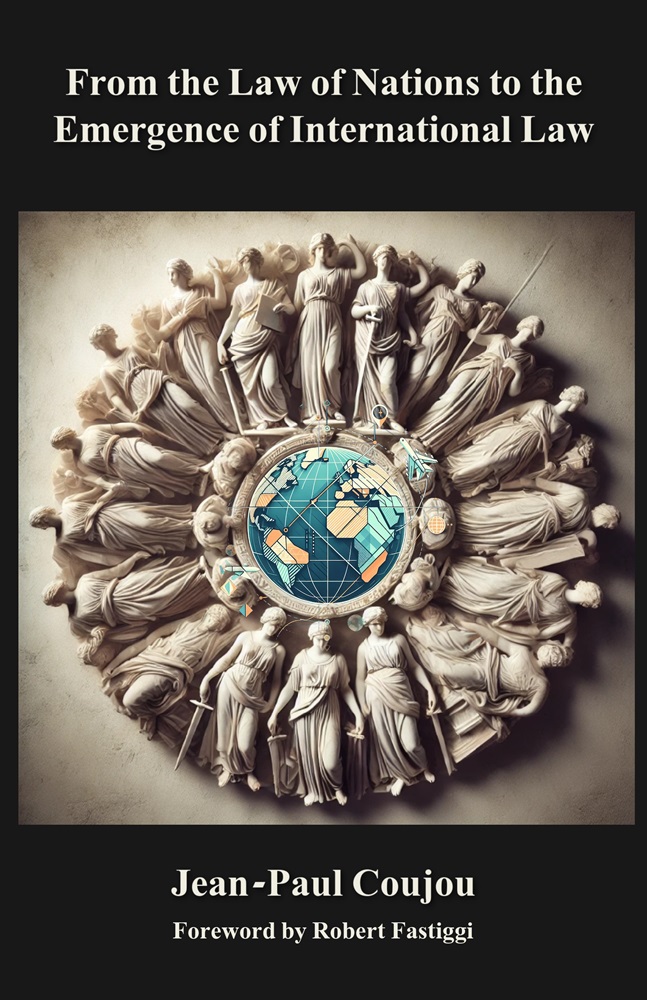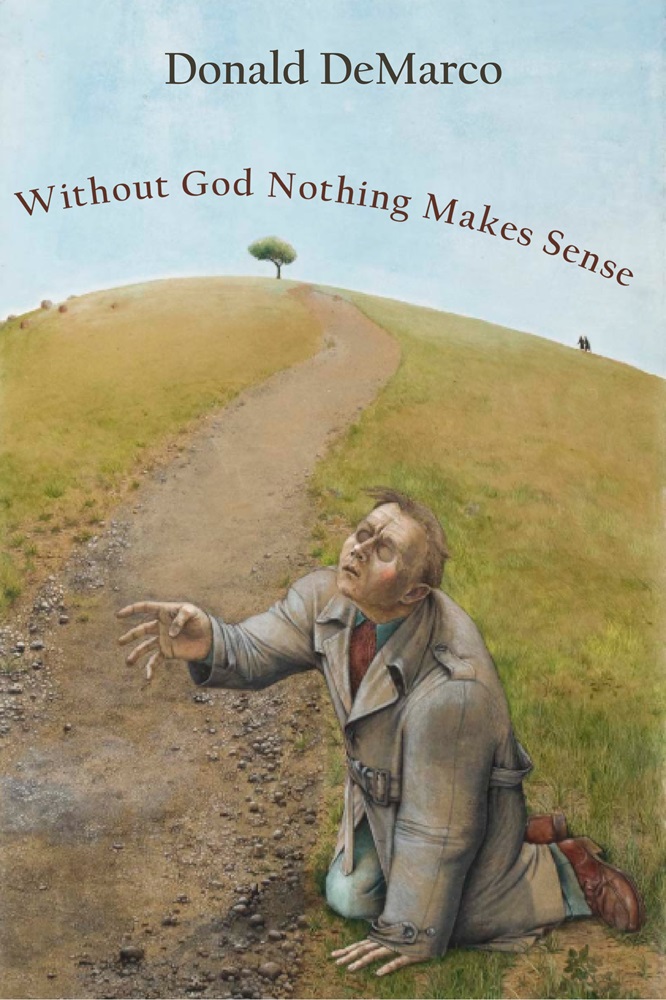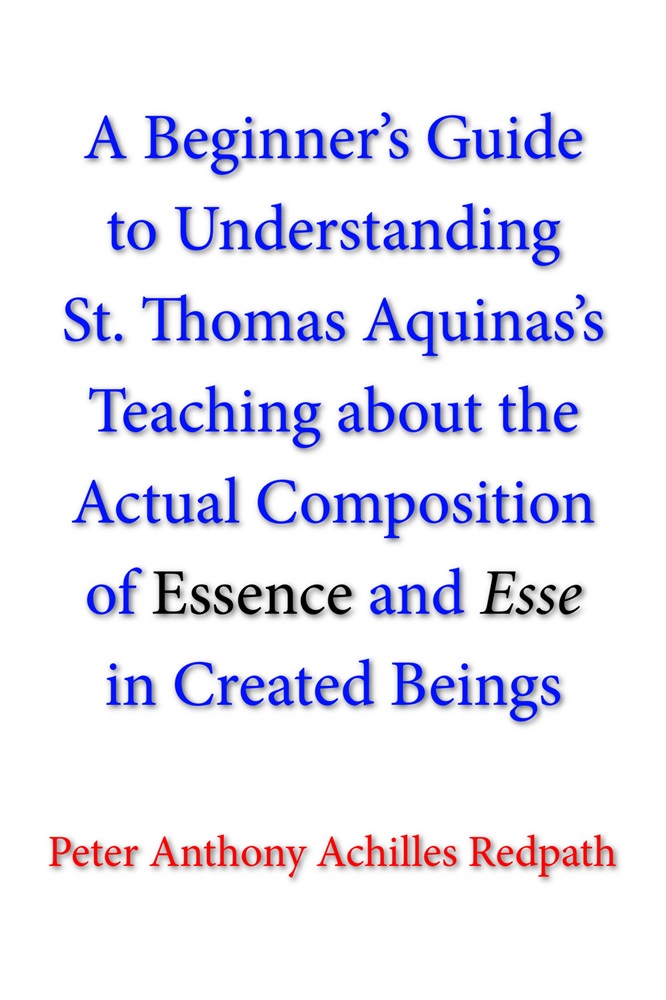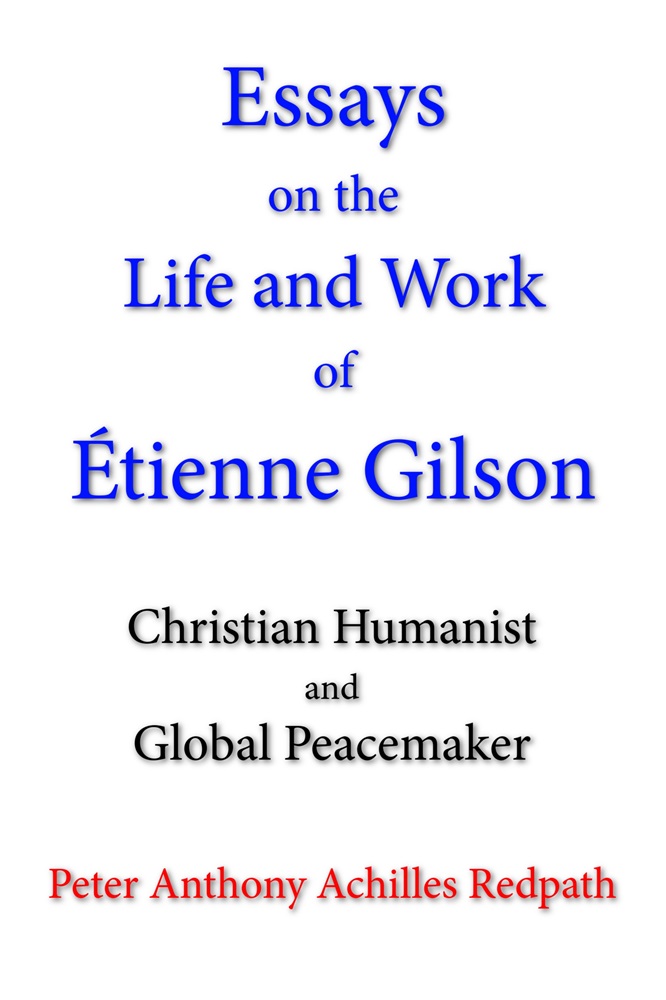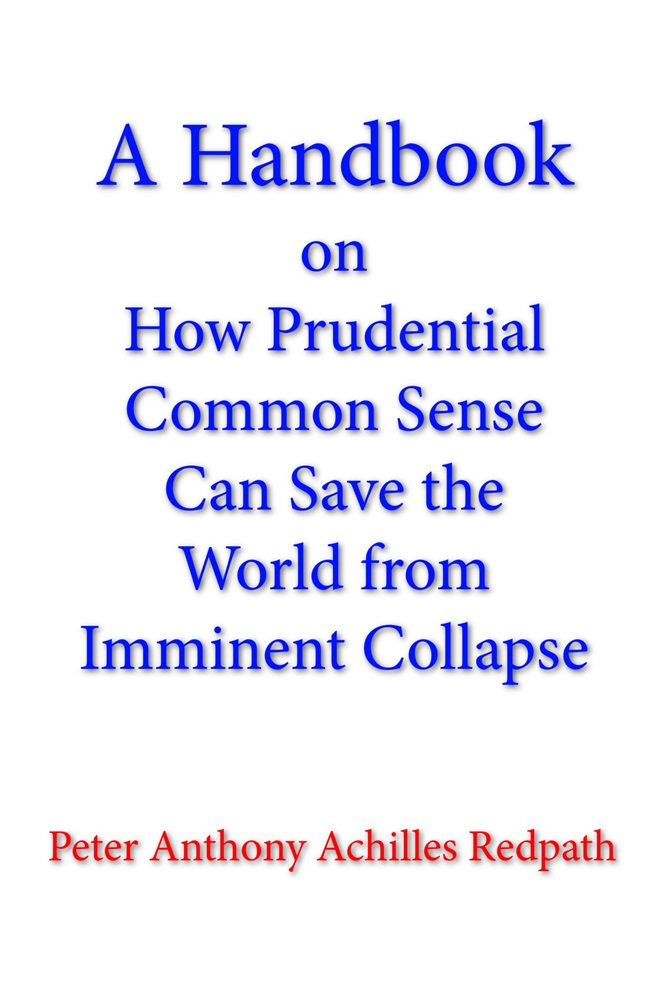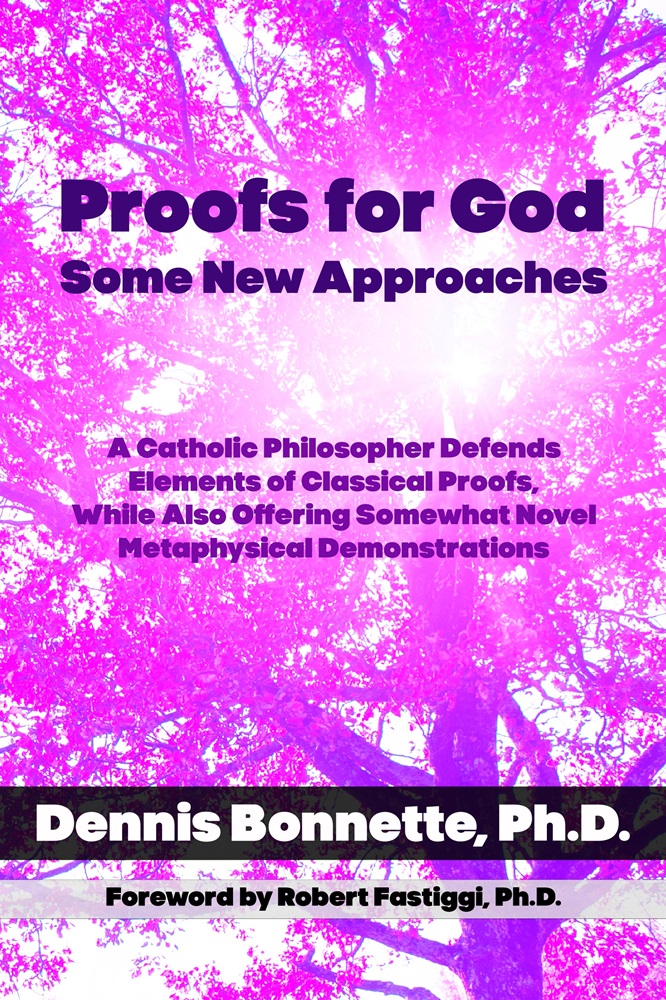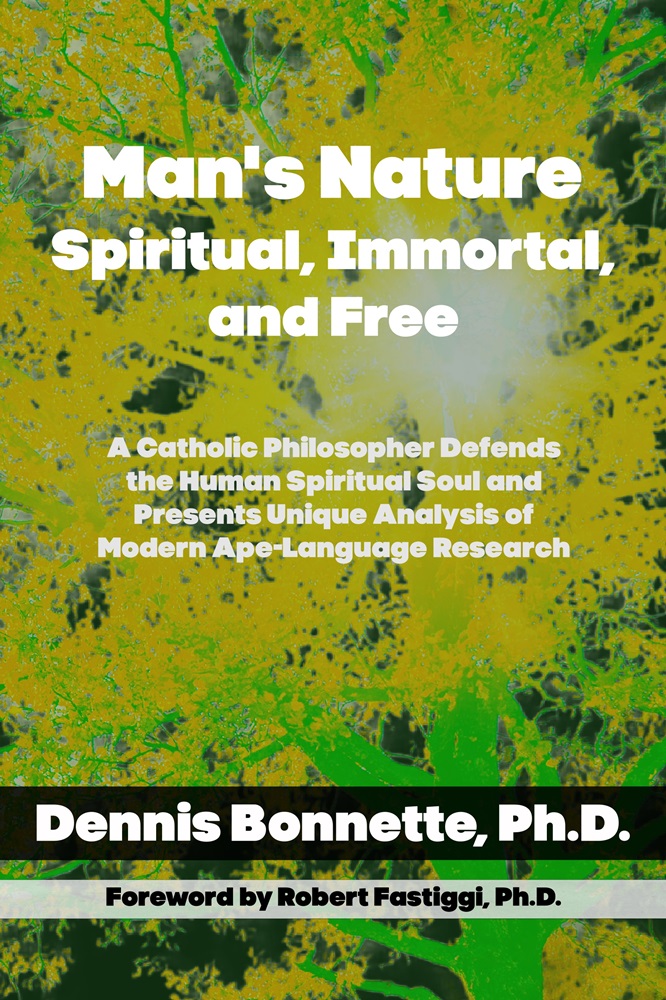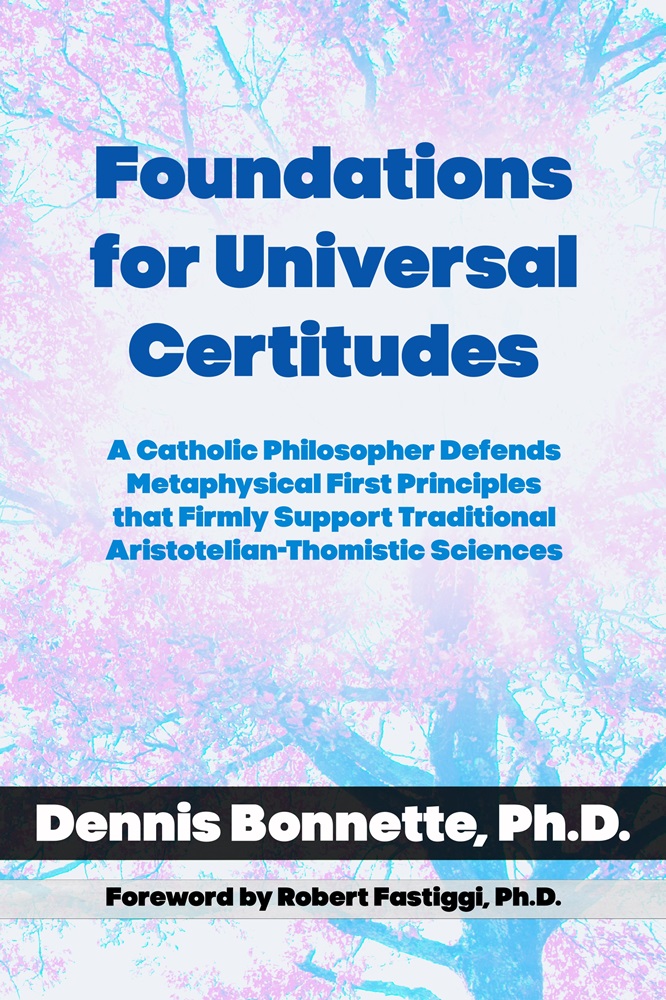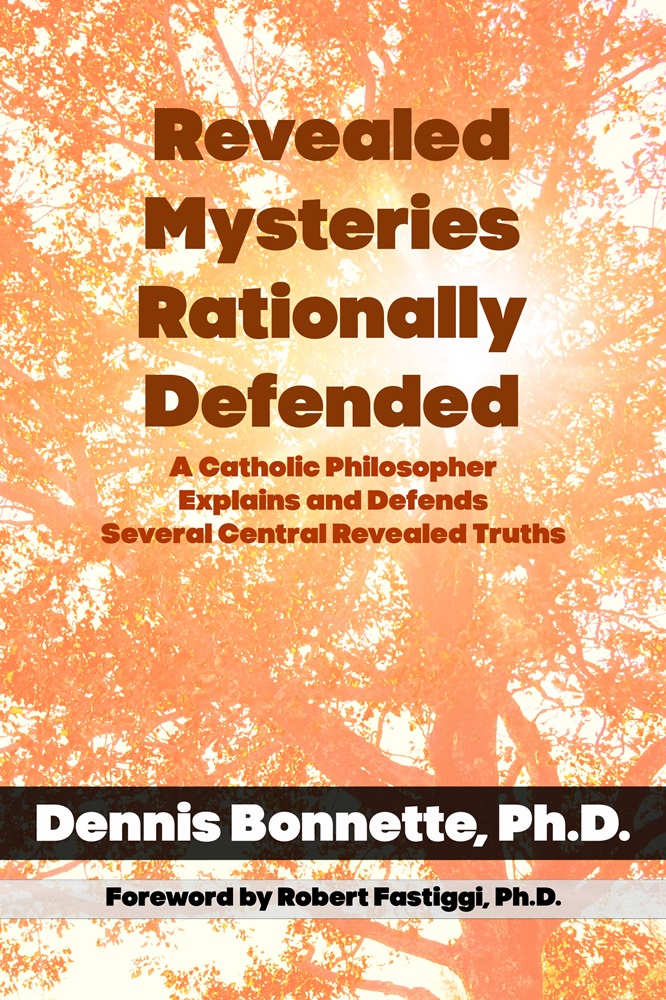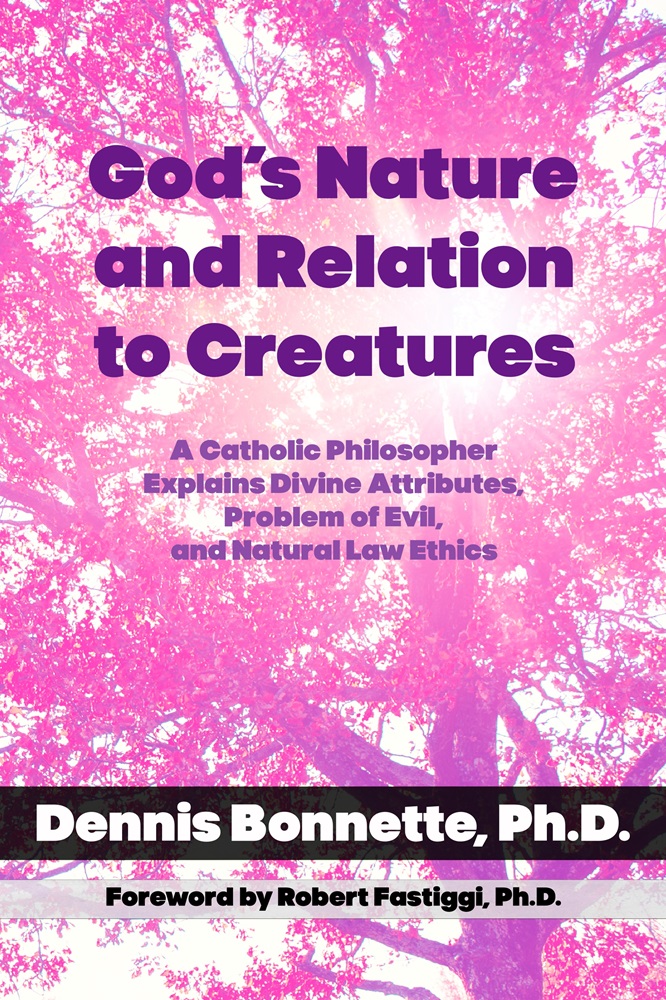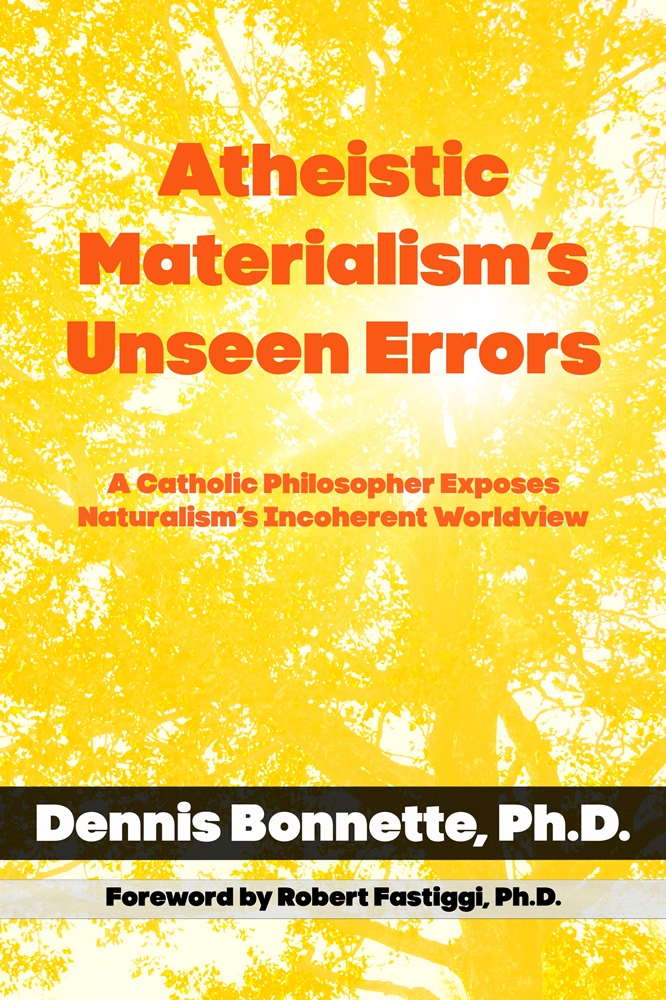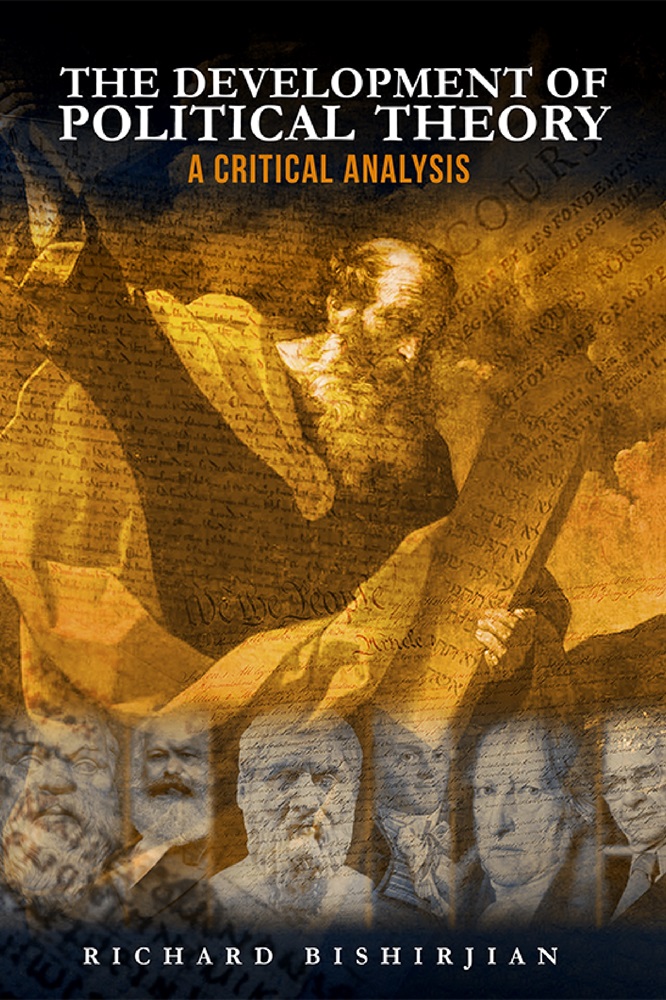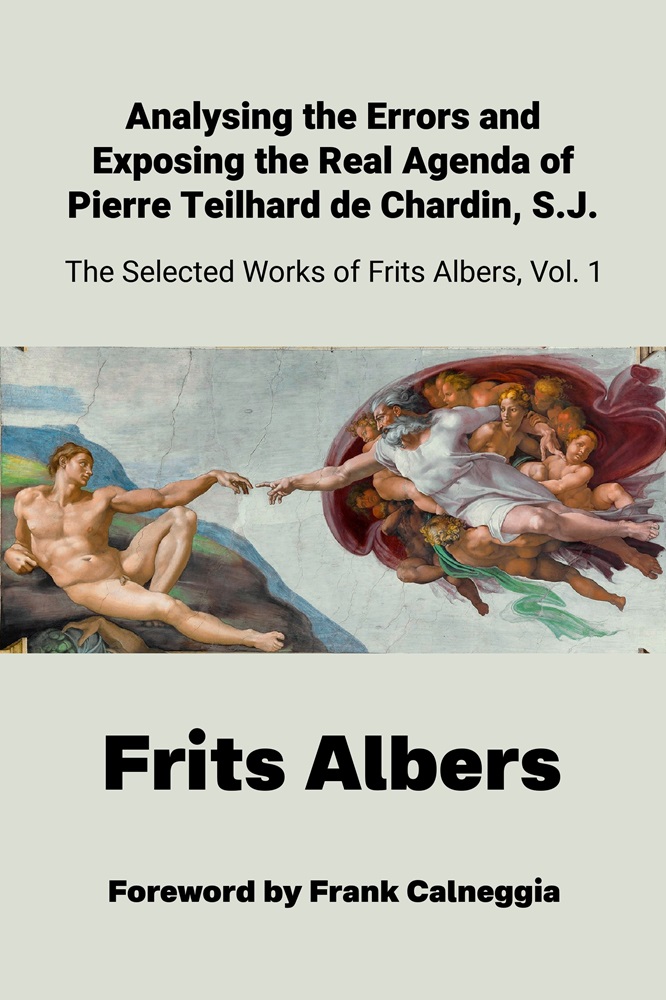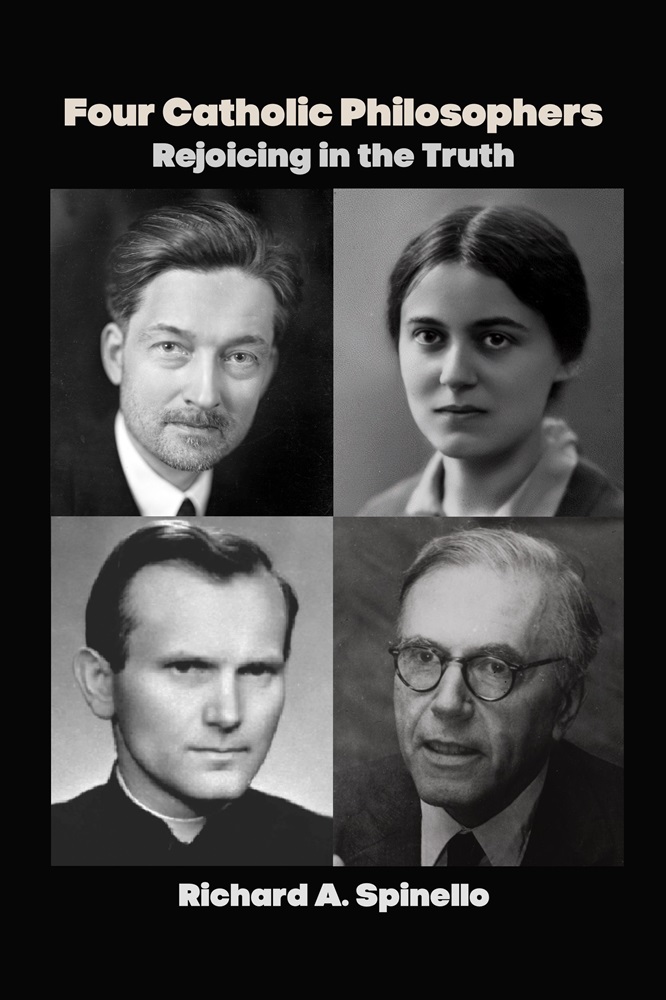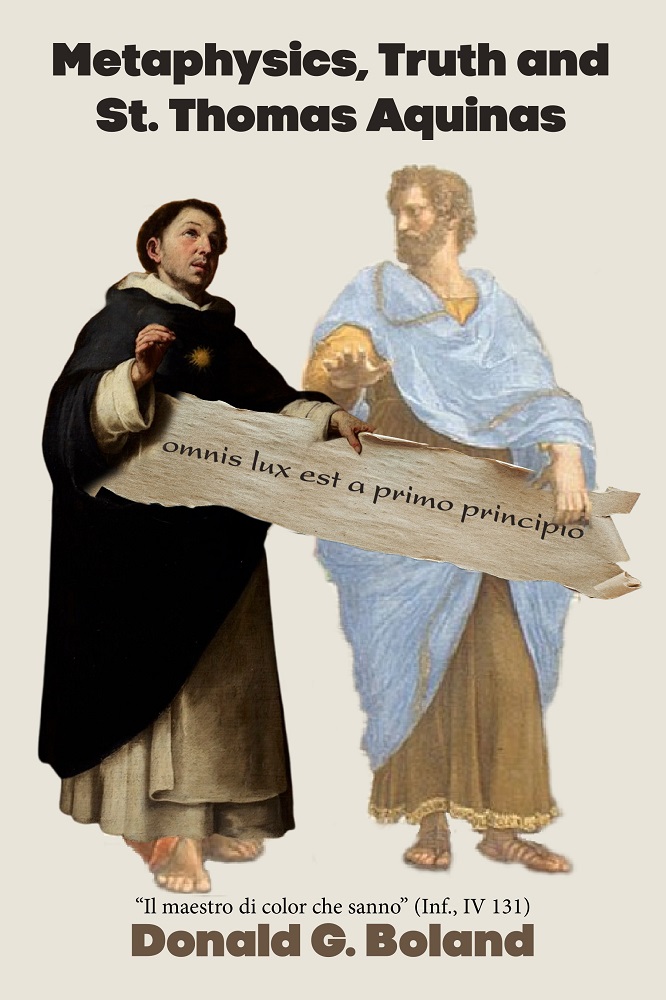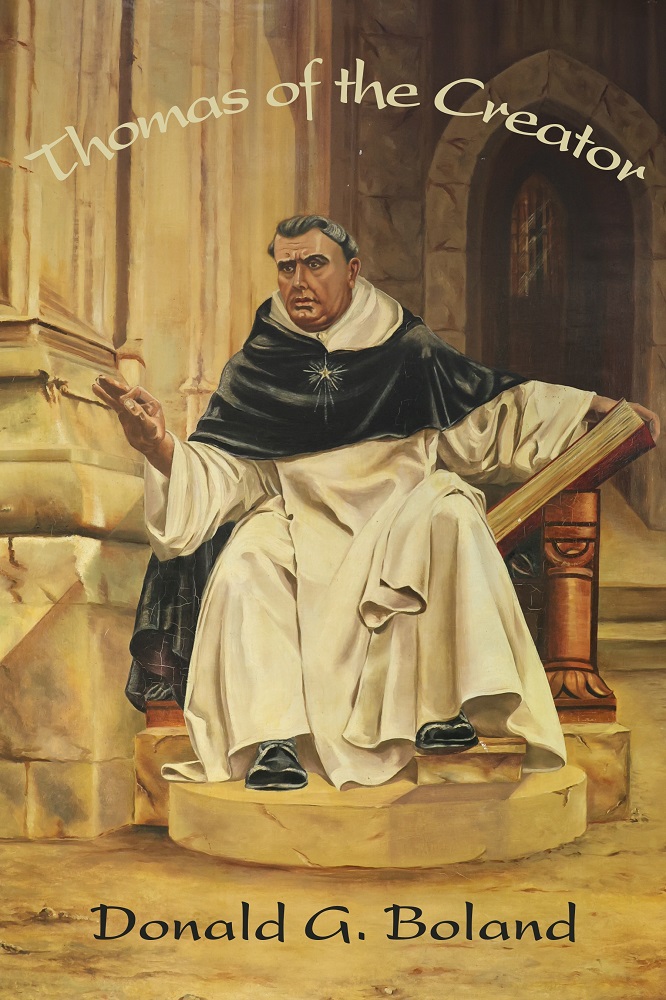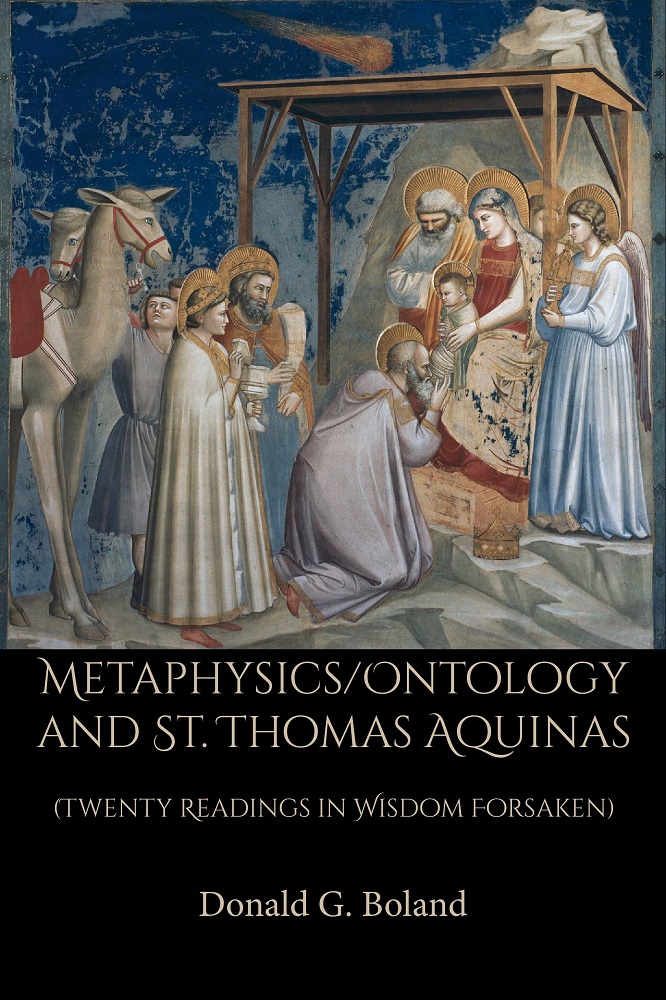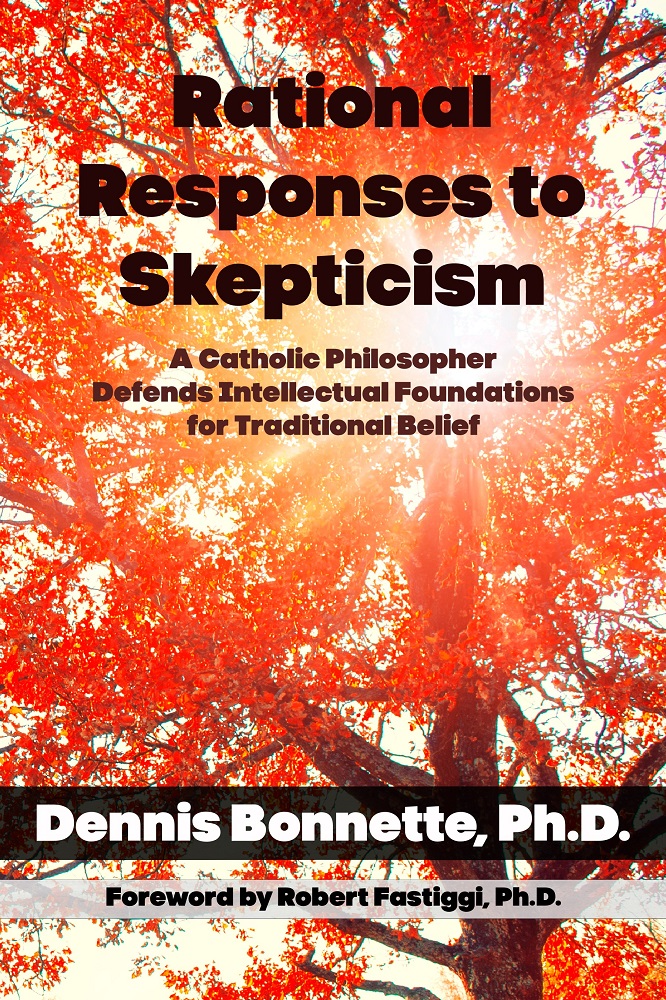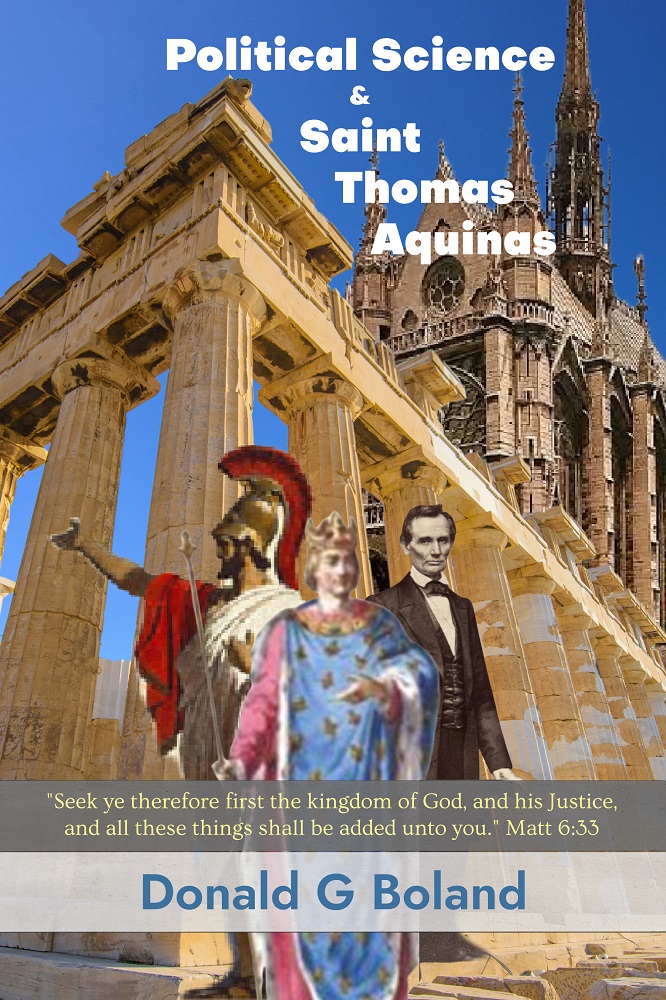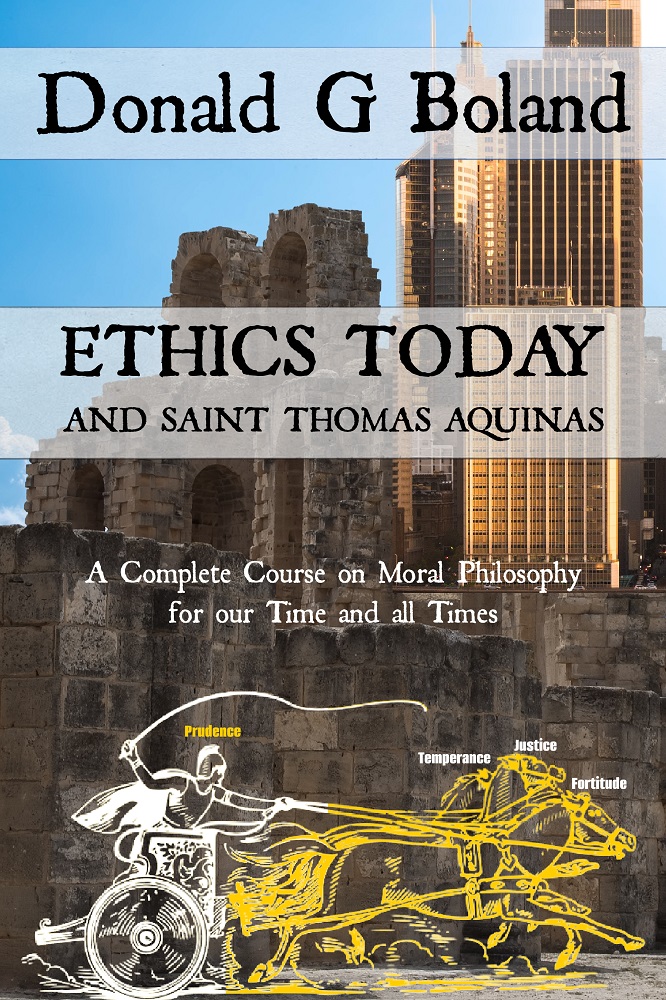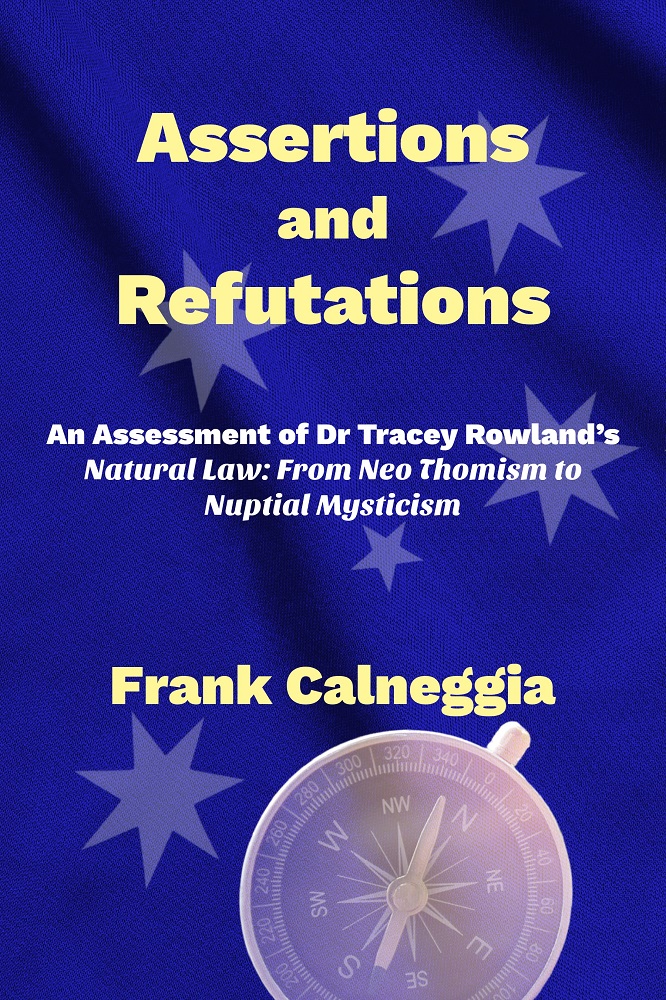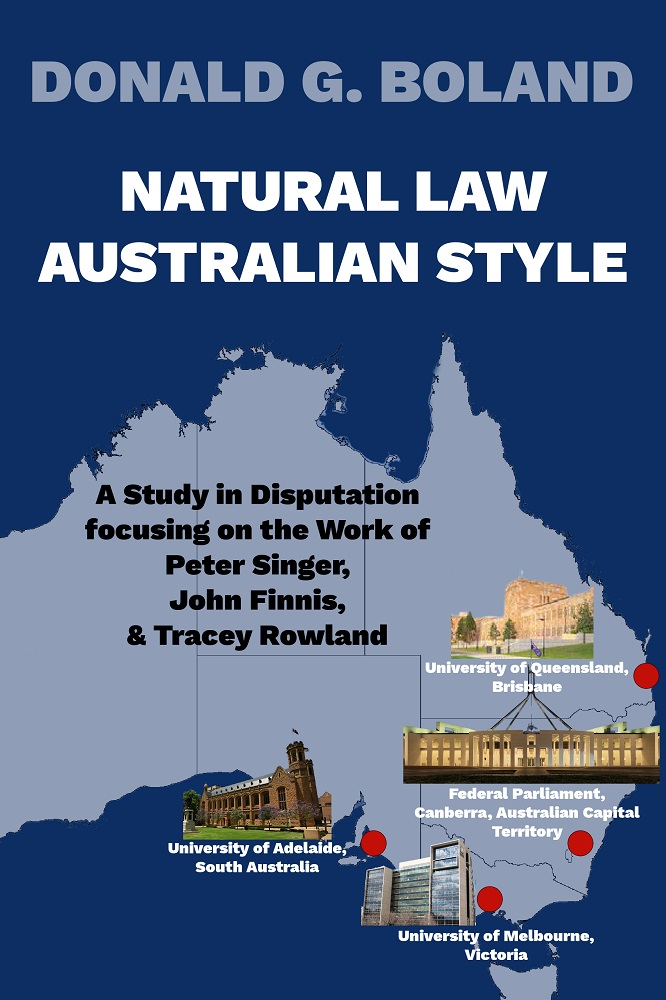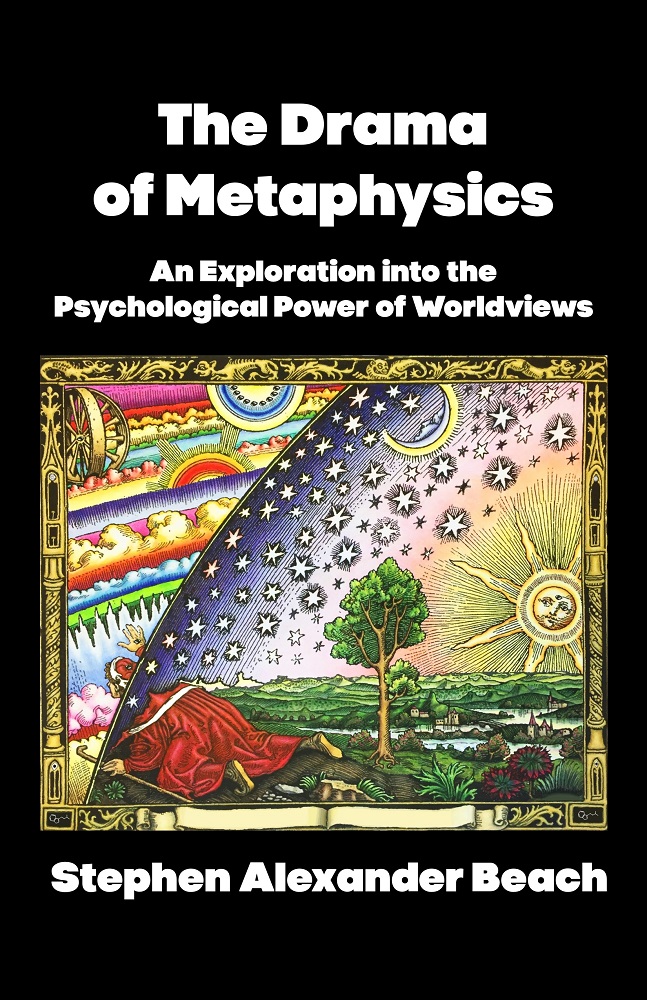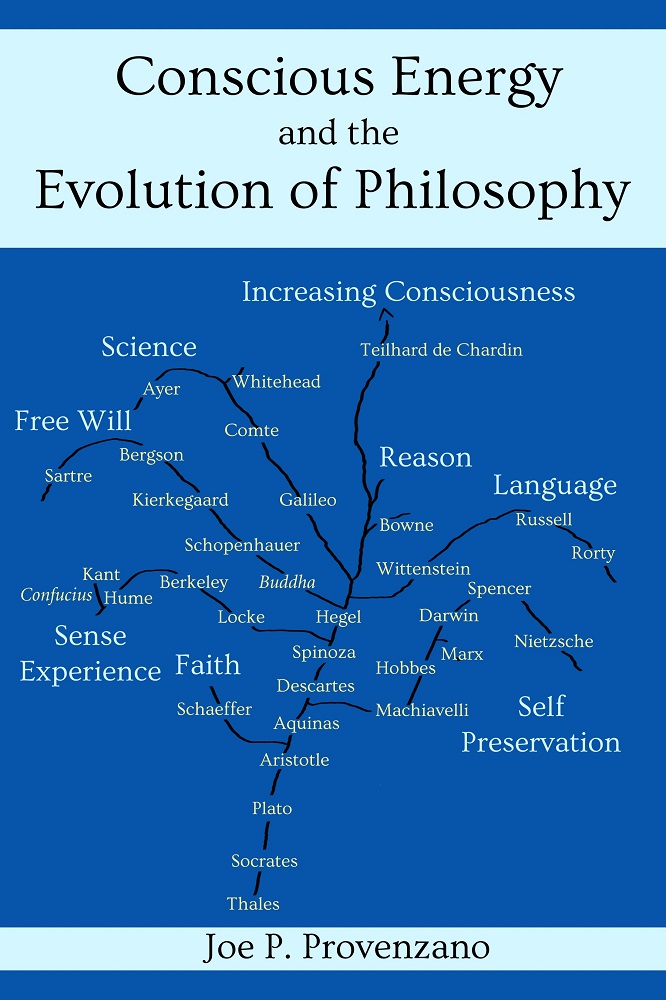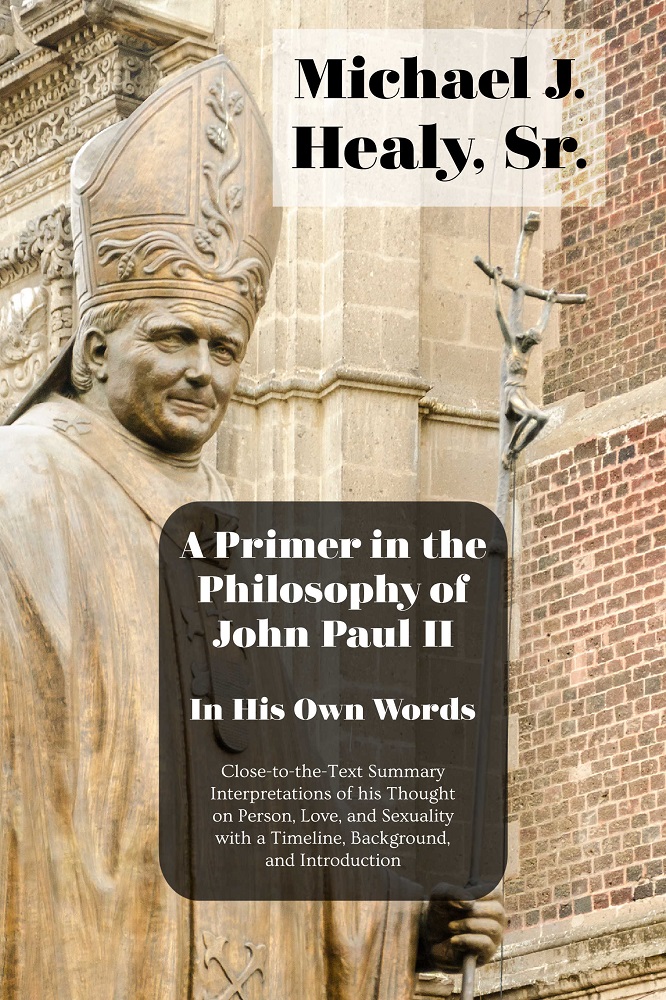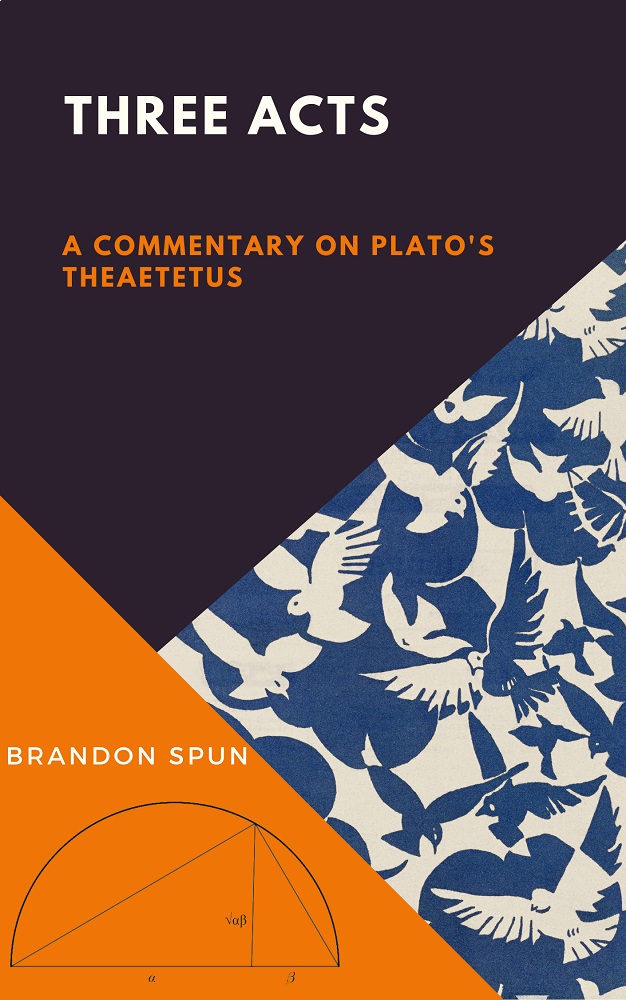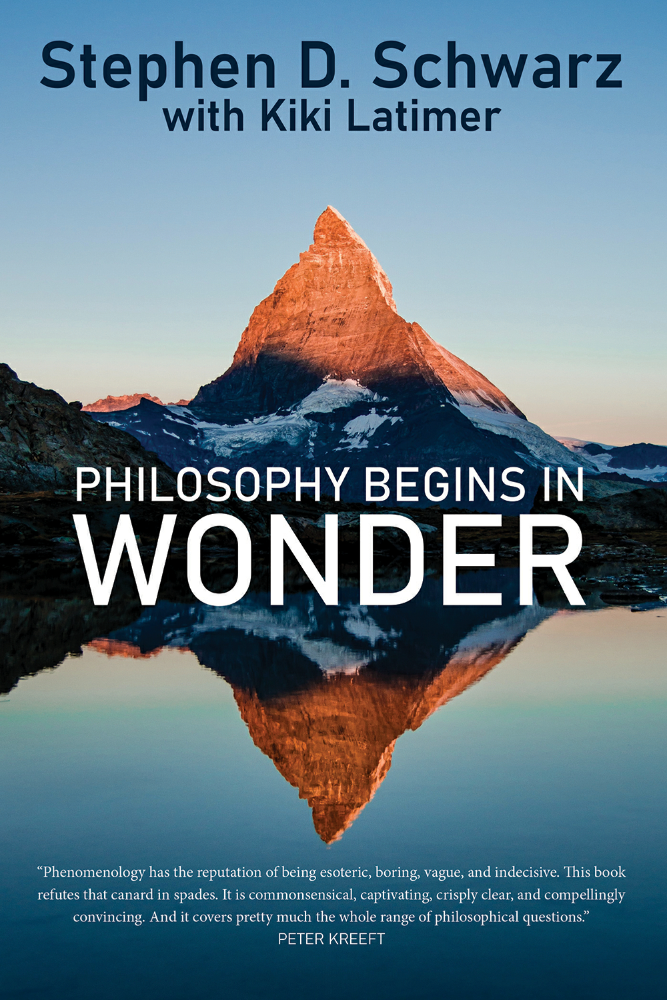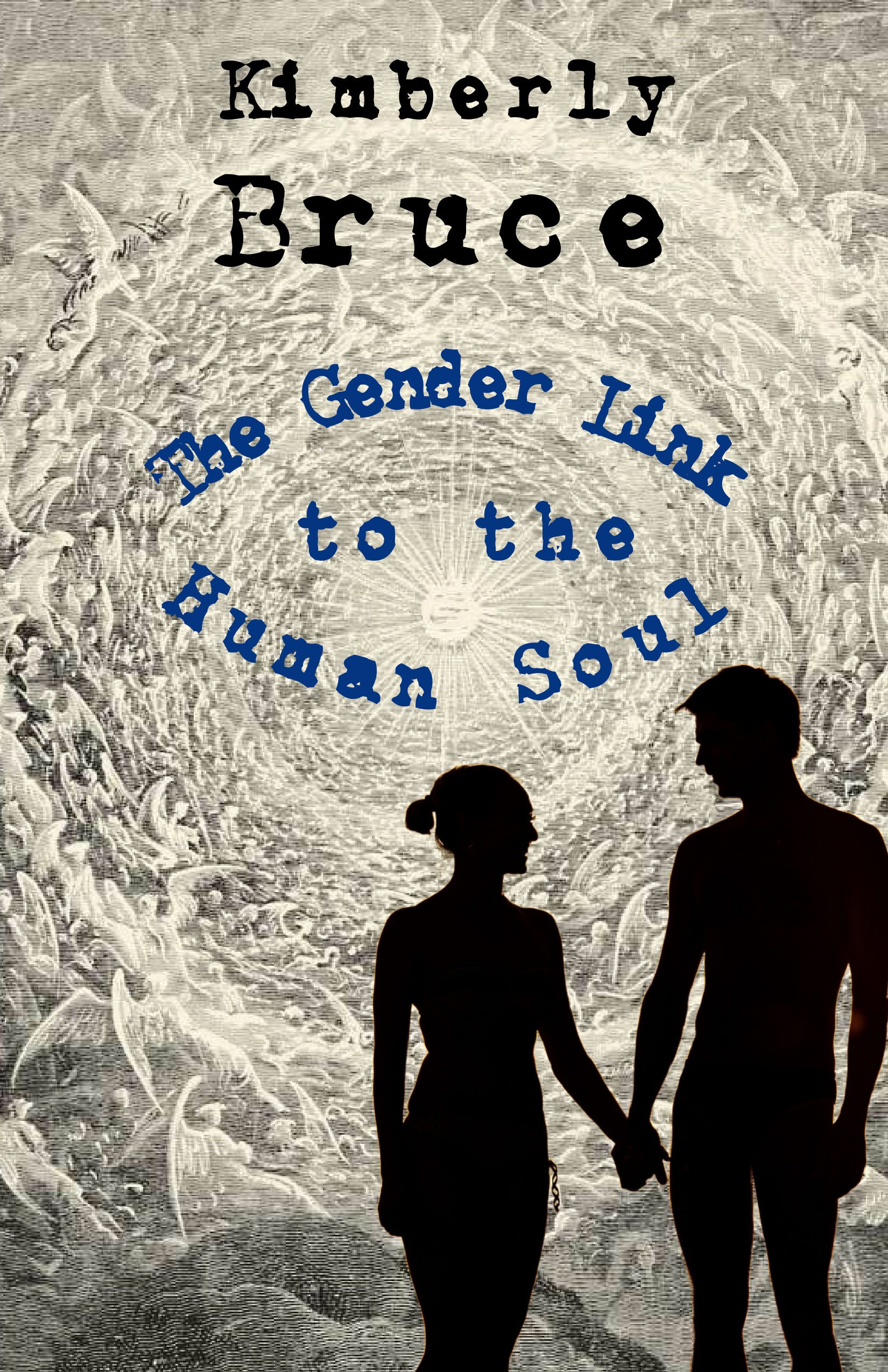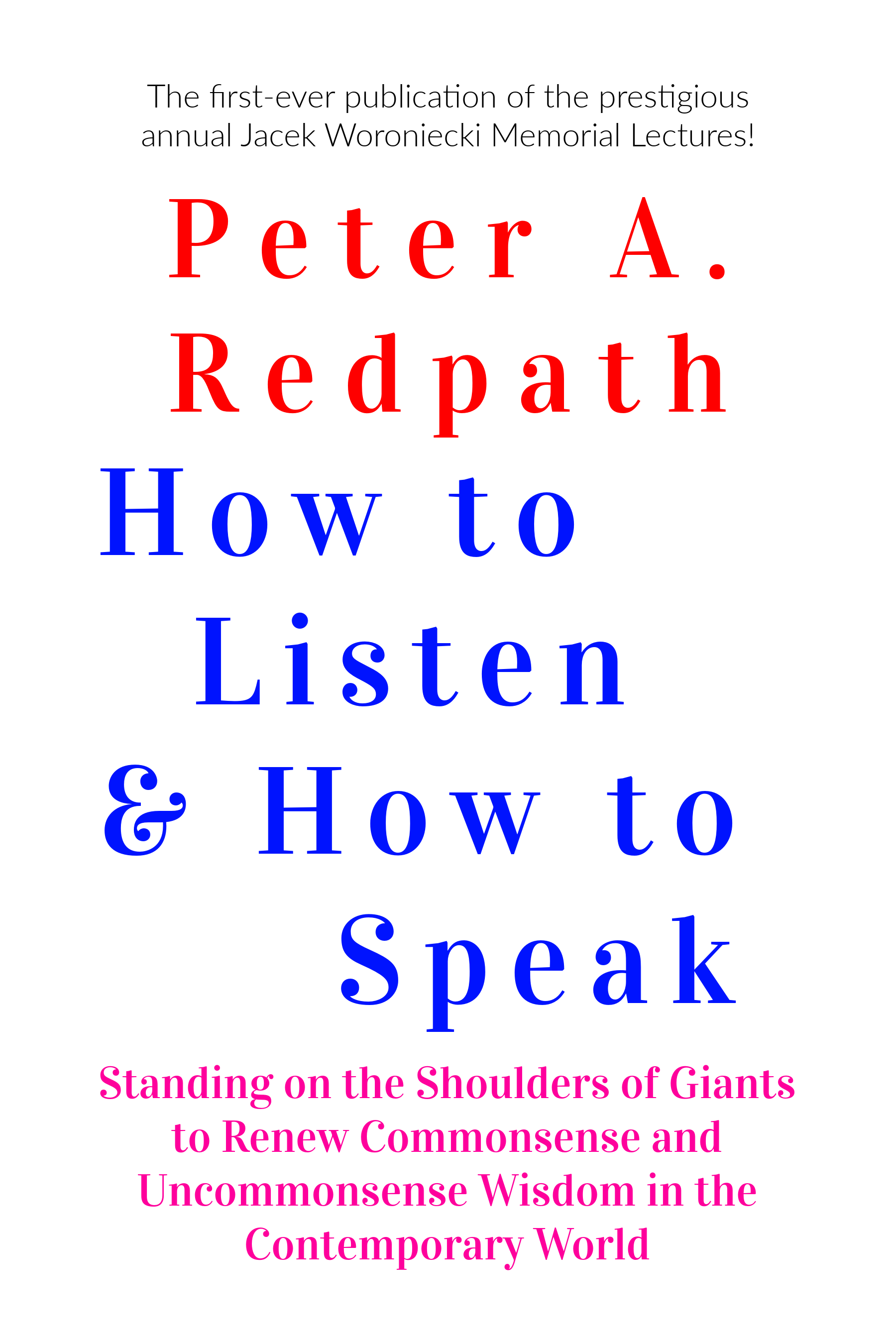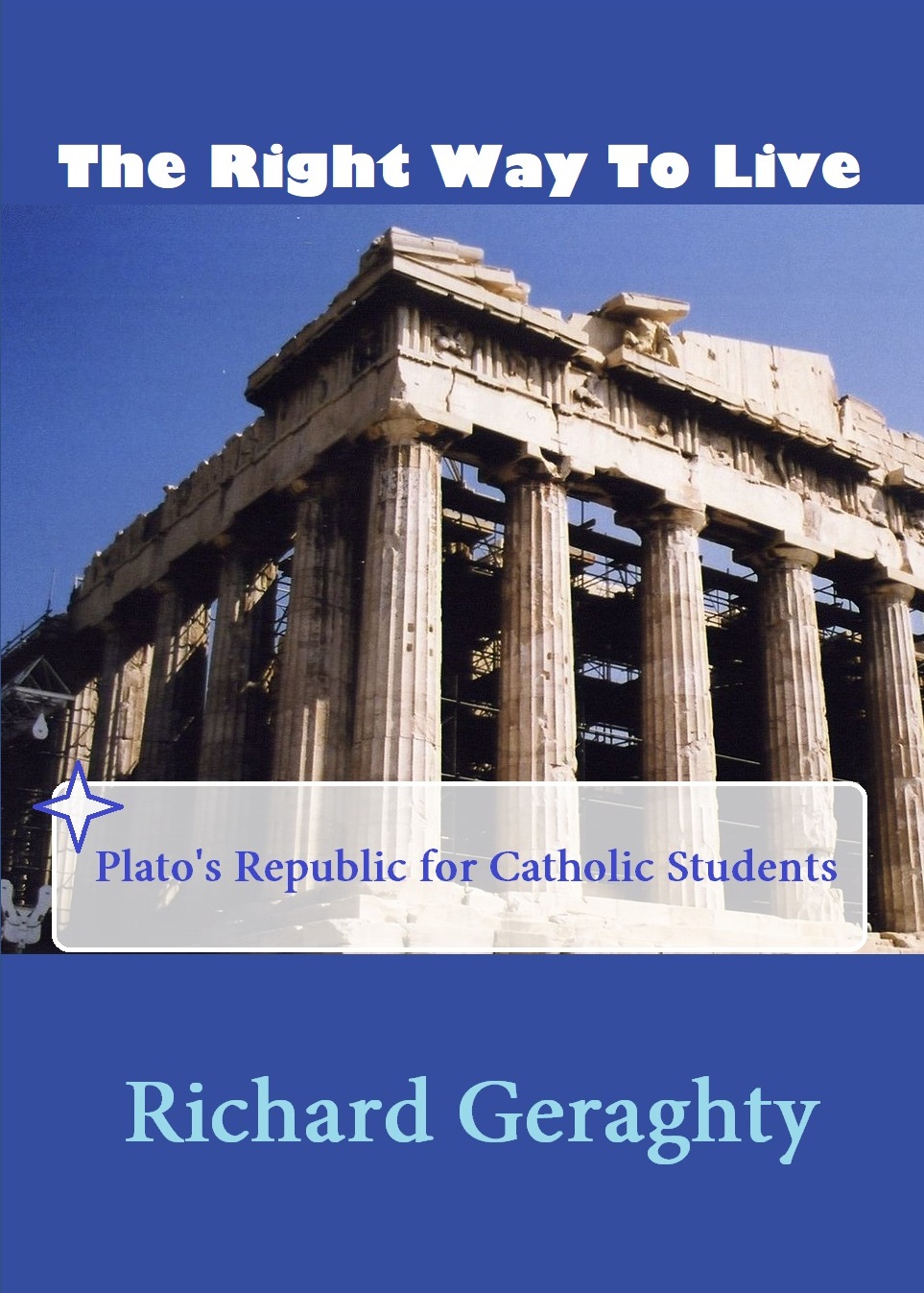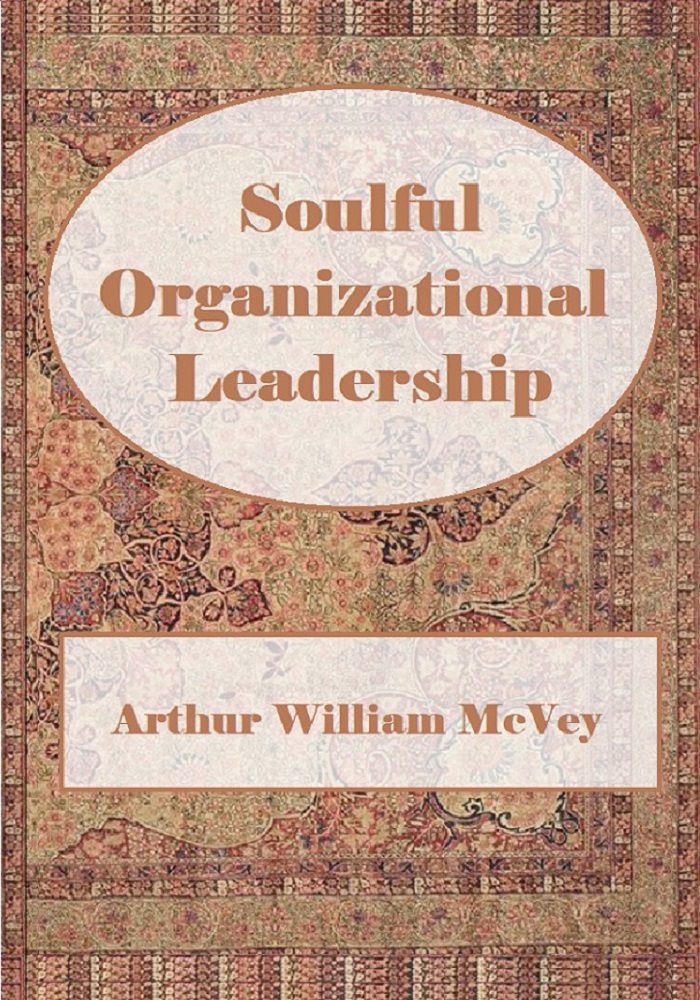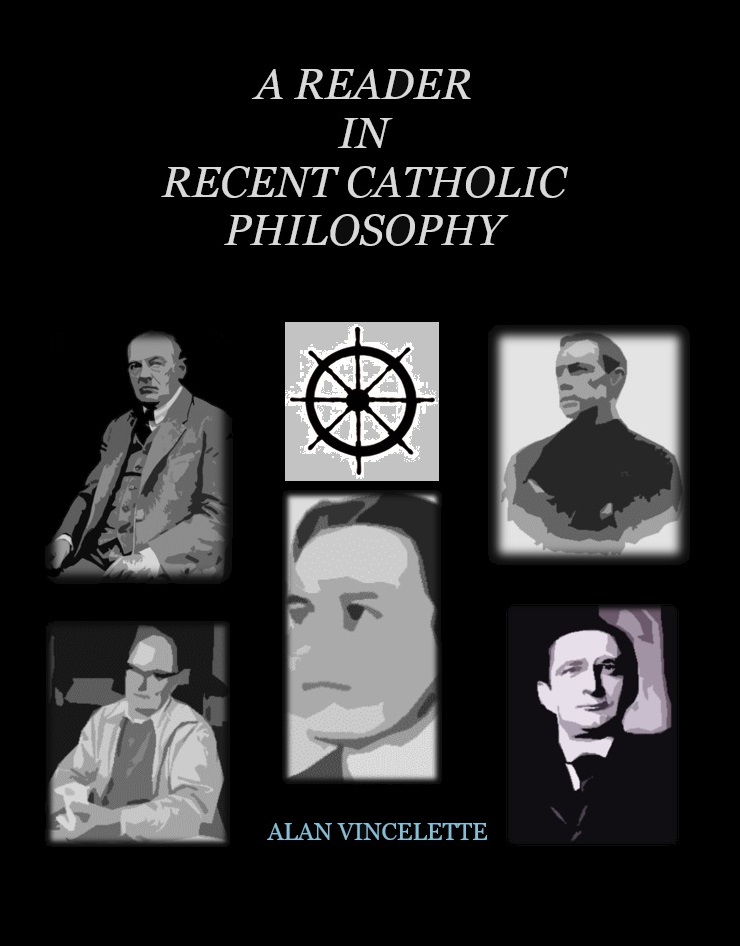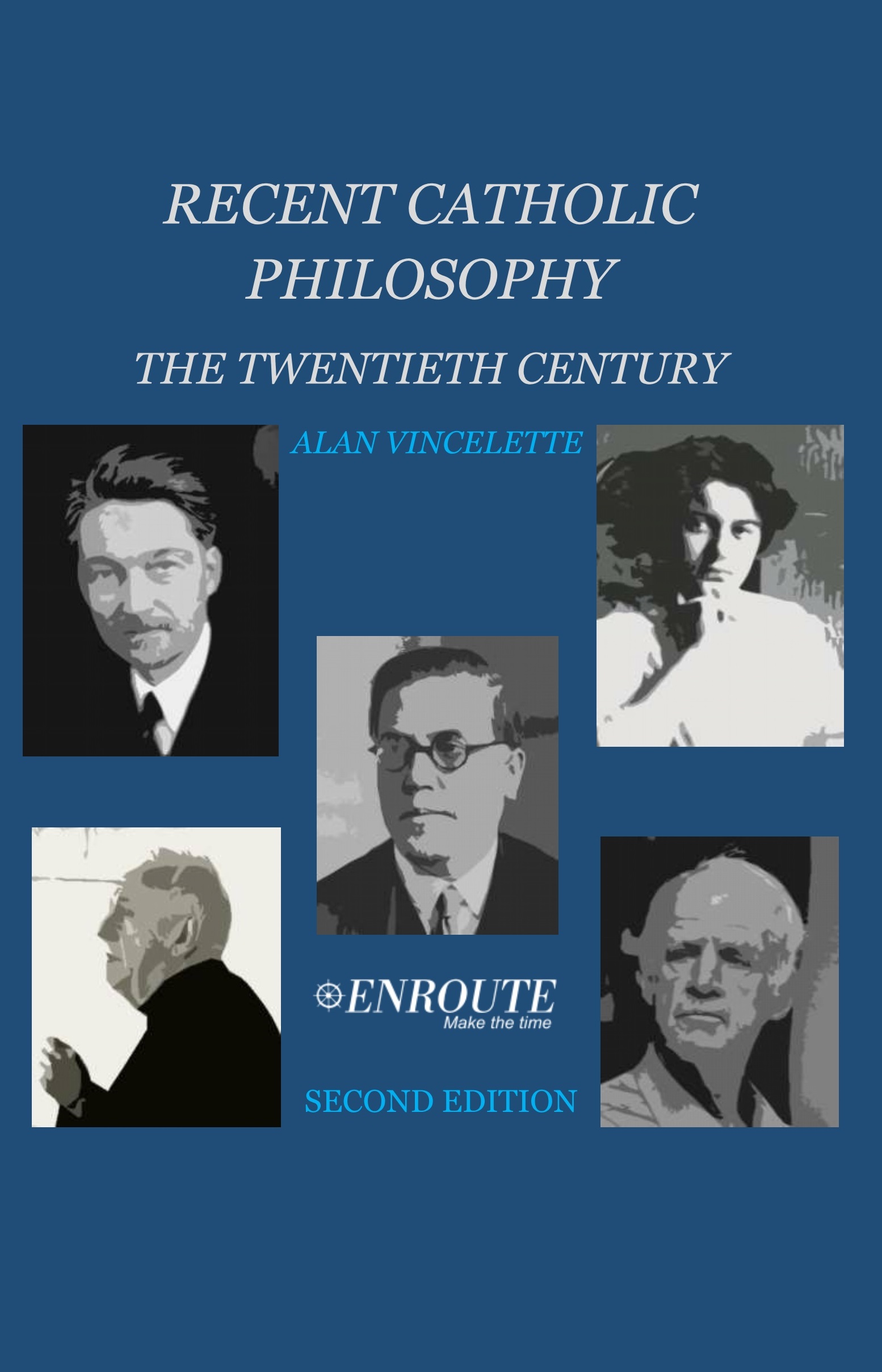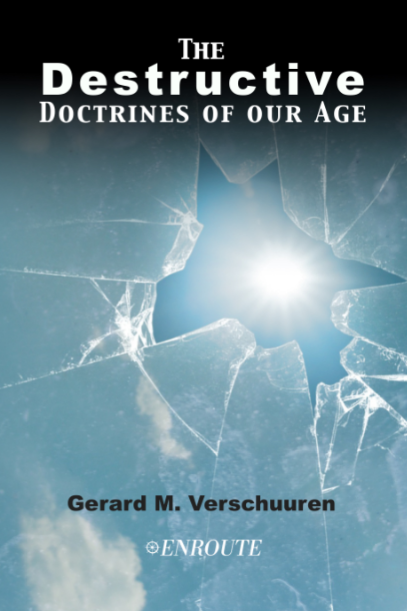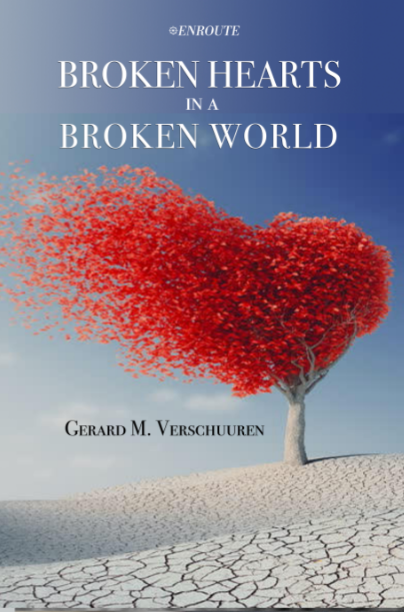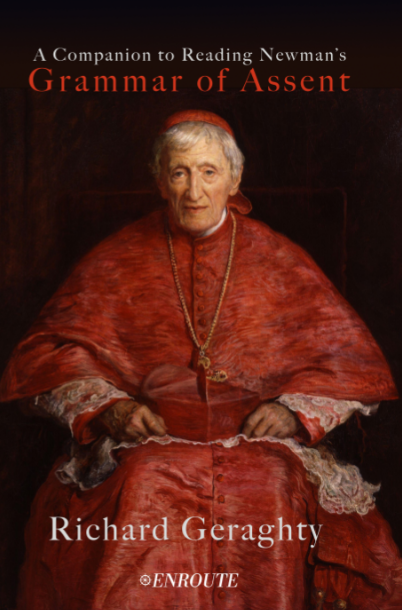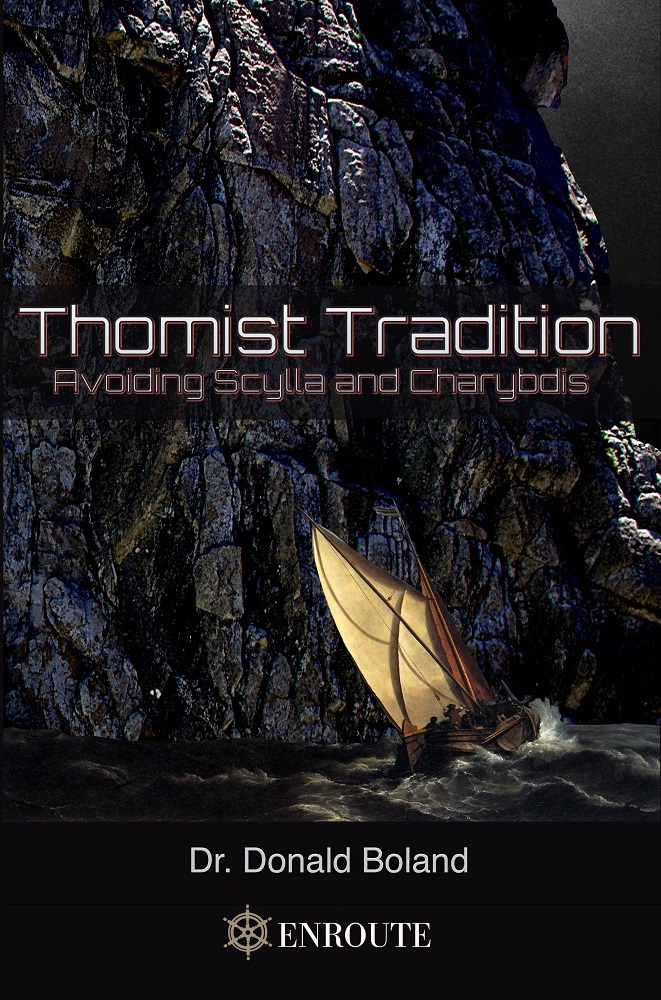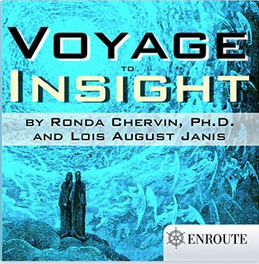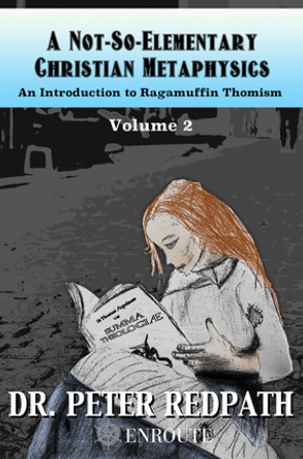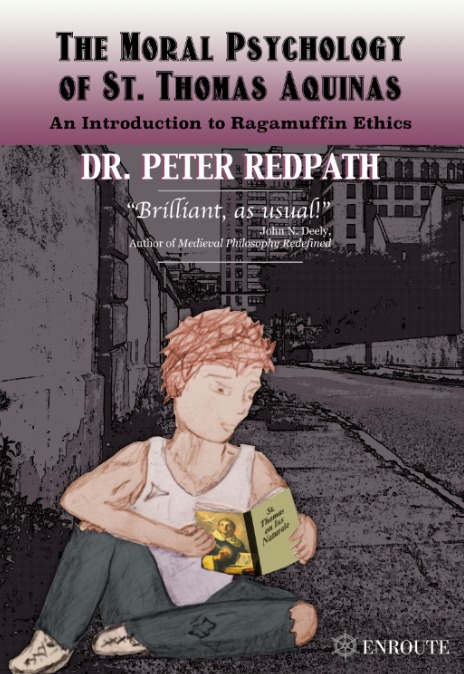A Not-So-Elementary Christian Metaphysics, Volume 1: Written in the Hope of Ending the Centuries-old Separation between Philosophy and Science and Science and Wisdom
by Dr. Peter Redpath
This book’s chief aim is novel and radical: to reunite philosophy, science, and wisdom (which had initially been separated several centuries ago by René Descartes) through a synthesis of two new interpretations, one of the nature of ancient Greek philosophy and science, and, two, of the metaphysical teachings of St. Thomas Aquinas about philosophy and science. Download Chapter 1 of Volume 1 for free and buy the book to read the rest.
Paperback $19.99 | Hardback $32.99 | Kindle $9.99
On December 11, 2012, Prof. Peter A. Redpath discussed his book A Not-So-Elementary Christian Metaphysics in which he examines the essential connection between philosophy, science, and wisdom, severed with the birth of “modern science.”
- Audio version of the above talk located on the International Etienne Gilson Society Website:
SCHOLARLY REVIEWS
- Dr. Raymond Dennehy, International Philosophical Quarterly (Volume 56, Issue 3, September 2016, 381-383) – (click here to read it).
- Fr. James V. Schall, SJ, New Oxford Review (May 2018) – (click here to read it)
TESTIMONIALS
“Standing on the shoulders of the intellectual principles that he has synthesized from classical thinkers like Plato, Aristotle, and Aquinas and twentieth-century intellectual giants like Mortimer J. Adler, Jacques Maritain, Armand A. Maurer, and Charles Bonaventure Crowley, Redpath has, in the tradition of Adler, composed a monumental work that challenges as false and civilizationally dangerous prevailing opinions of leading philosophical scholars, scientists, and ethicists ‘falsely-so-called’ about the nature and history of the subjects in which they profess to have an expertise.” – Max Weismann, Co-founder, with Mortimer J. Adler, of the Center for the Study of The Great Ideas
“In his book, A Not So Elementary Christian Metaphysics, Dr. Peter Redpath offers insightful analysis as to how modern science came to replace the classical philosophy and theology that had reigned in Western thought prior to the time of Rene Descartes. Redpath points out that no true science is possible without metaphysics first to offer apodictic foundations upon which to build the scientific edifice. Still, Descartes separated science from the world of theology and philosophy, thus starting it on a long historical road that ends in traditional ontological questions about human life, its origin, and destiny being now claimed solely the province of utopian socialists using modern methods of mathematical physics. The author skillfully illuminates the intellectual moves made by modern philosophers that led finally to the abysmal error that traditional religion and philosophy are today considered relics of an ‘infantile past.’ Redpath’s adroit exposure of this twisted intellectual path to modern folly makes for rewarding reading.” – Dr. Dennis Bonnette, retired, Niagara University in Lewiston, New York
“The power of Redpath’s historical survey and analysis is reminiscent of Hegel at his most sweeping.” – Jude P. Dougherty, Dean Emeritus of the School of Philosophy at The Catholic University of America
“Within the context of his penetrating review, Redpath gives stunning reinterpretations of Plato, Aristotle, and Aquinas to show that each of them recognized philosophy and science to be mainly studies of the problem of understanding the one and the many. His analysis of Aristotle and St. Thomas’s teaching about the nature of science is revolutionary. Within the process of these reinterpretations, he challenges commonly-received opinions among scholars about the nature and origin of the problem of universals, the nature of analogy and Christian philosophy, and the role that Descartes and Rousseau play in the development of modern thought. He persuasively argues that Rousseau is a neo-Averroist and that Rousseau’s teaching about the ‘General Will’ is simply an analogous transposition to the political sphere of Averroes’s teaching about the unity of the intellect. He even goes so far as to claim that the popular reduction of science to physics and the divorce of science from philosophy and wisdom is a result of the displacement in modern thought of metaphysics by utopian socialism (of various stripes). In short, he radically alters prevailing undertandings of philosophy, science, politics, and their history. In doing so he opens the path to their reunification. To say that this book is groundbreaking is an understatement. It is nothing short of a radical reinterpretation of Western intellectual history. As such, it should be an essential part of any serious scholar’s library.” – Dr. Curtis Hancock, Rockhurst University
“Common sense tells us the mind seeks unity and truth. While the universe is composed of many elements, the universe is nonetheless a universe(meaning one.) Our mind seeks truth in understanding commonality. The Greeks understood that the mind sought wisdom by the integration of reality. The modern age as it evolved to materialism and atheism chose to separate science from philosophy from each other ,being dismissive of philosophy since it was intangible. The issue is simple, but scientists and philosophers who are legendary created labyrinthian epistemological systems that bear no semblance to reality. Redpath, being a brilliantly disciplined philosopher with the common sense of a native of Brooklyn, NY cuts through the confusion in a volume that will rock ersatz philosophers!!!” – Joseph Indelicato, Caritas Consulting
“Dr. Redpath observes that all science/philosophy ‘chiefly aims at improving human possession of truth’ and adopts Mortimer Adler’s reflection that ‘the relation between truth and error is always that of a one to many. The truth is always singular, while the errors it corrects are manifold’ (p.210). In this work, Dr. Redpath accurately identifies the conditions for knowing the truth and at the same time combats the manifold errors that flow from the modern and postmodern misunderstanding of science/philosophy and attendant separation of science from philosophy. Metaphysical realism unites all the sciences under a final end and is inseparable from them. The principles of metaphysics are common to all the arts and sciences. Tearing down this wall of separation between philosophy and science is a necessary condition for reversing the decay of Western culture. Redpath begins the task.” – Michael B. Mangini, Attorney-at-Law
“This book is a “must read” for anyone wanting to develop a fine critical thinking on modern Western culture. Dr. Redpath provides a view of the evolution of modern thinking, by looking at the impact that abandoning Christian Metaphysics had on modernity, on current sciences and philosophy. Christian Metaphysics not only has a central role in providing unity to human knowledge, to build wisdom, to integrate sciences, which leads to the integration of the human being and the societies; but more than that, it rediscovers the best of the world, of man, the meaning of life, the road to happiness.” – Dr. Juan Pablo Stegmann
ABOUT THE AUTHOR
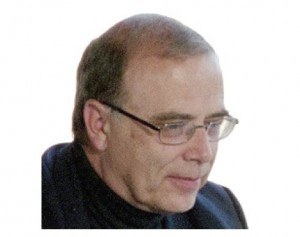 Peter A. Redpath (retired Full Professor of Philosophy at St. John’s University, New York) is author, editor, co-editor of 22 books and many dozens of articles and book reviews. An internationally recognized scholar, since 1980 he has given over 200 invited guest lectures nationally and internationally. Among his many accomplishments, he is CEO of the Aquinas School of Leadership, LLC; former Founder and Chair of the Thomistic Studies Graduate Concentration in Christian Wisdom for Holy Apostles College and Seminary (USA); an Affiliate Scholar with the University Abat Oliba Graduate program (Barcelona, Spain). Peter is also co-founder of the Gilson Society (USA) and the International Etienne Gilson Society, the Adler-Aquinas Institute, and the Angelicum Academy and Great Books Academy homeschool programs (both founded with the help of Mortimer J. Adler); former executive editor of the Value Inquiry Book Series (VIBS) for the Dutch publisher Editions Rodopi, B.V., and special series editor for Rodopi and Brill/Rodopi. Presently, he is a member of the editorial board of Brill Publishing’s Philosophy and Religion (PAR) series, a member of the Advisory Board of the Lyceum Institute, and Officer in Charge of Medieval Christian Philosophy and Academic Liaison to the Holy See for Global Scholarly Publications. For a list of articles published on the Catholic World Report, see http://www.catholicworldreport.com/author/redpath-peter/
Peter A. Redpath (retired Full Professor of Philosophy at St. John’s University, New York) is author, editor, co-editor of 22 books and many dozens of articles and book reviews. An internationally recognized scholar, since 1980 he has given over 200 invited guest lectures nationally and internationally. Among his many accomplishments, he is CEO of the Aquinas School of Leadership, LLC; former Founder and Chair of the Thomistic Studies Graduate Concentration in Christian Wisdom for Holy Apostles College and Seminary (USA); an Affiliate Scholar with the University Abat Oliba Graduate program (Barcelona, Spain). Peter is also co-founder of the Gilson Society (USA) and the International Etienne Gilson Society, the Adler-Aquinas Institute, and the Angelicum Academy and Great Books Academy homeschool programs (both founded with the help of Mortimer J. Adler); former executive editor of the Value Inquiry Book Series (VIBS) for the Dutch publisher Editions Rodopi, B.V., and special series editor for Rodopi and Brill/Rodopi. Presently, he is a member of the editorial board of Brill Publishing’s Philosophy and Religion (PAR) series, a member of the Advisory Board of the Lyceum Institute, and Officer in Charge of Medieval Christian Philosophy and Academic Liaison to the Holy See for Global Scholarly Publications. For a list of articles published on the Catholic World Report, see http://www.catholicworldreport.com/author/redpath-peter/
One of the books Dr. Redpath has edited and highly endorses is Origin of the Human Species by Dr. Dennis Bonnette. Dr. Bonnette has also written an article on the topic entitled, “The rational credibility of a literal Adam and Eve.” When combined with the article, the book provides a Thomistic interpretation of mainstream evolution theory that is consonant with Catholic teaching, including that regarding our first parents.The article is found in the peer reviewed Spanish philosophical journal, Espiritu. For a list of articles published on the Catholic World Report, see http://www.catholicworldreport.com/author/redpath-peter/
OTHER CATHOLIC PHILOSOPHY BOOKS
Common Sense for a World of Common Nonsense by Donald DeMarco
Common Sense for a World of Common Nonsense by Dr. Donald DeMarco In Common Sense for a World of Common Nonsense, Dr. Donald DeMarco examines modern moral confusion through sharp, philosophical essays that contrast virtue with ideology. Divided into “Common Nonsense”...
The Invention of Philosophical Rationality: An Introduction to Philosophy by Way of the Presocratics by Fulvio Di Blasi
The Invention of Philosophical Rationality: An Introduction to Philosophy by Way of the Presocratics By Fulvio di Blasi Fulvio Di Blasi’s The Invention of Philosophical Rationality explores the foundational role of Presocratic philosophy in shaping Western thought....
Covid 19 and the War Against Reality by Thaddeus J. Kozinski, Ph.D.
Covid 19 and the War Against Reality By Thaddeus Kozinski, Ph.D. This book puts into spiritual, theological, philosophical, psychological, moral, historical, cultural, and political perspective the incredible evil we have witnessed and suffered over the past four...
From the Law of Nations to the Emergence of International Law by Jean-Paul Coujou
From the Law of Nations to the Emergence of International Law by Jean-Paul Coujou In this book, Jean-Paul Coujou explores the historical evolution of international law from antiquity through modernity. He traces the development of the law of nations (ius gentium),...
Without God Nothing Makes Sense by Donald DeMarco
Cover image copyright: "Lord, that I may see," the Estate of William Kurelek, courtesy of the Wynick/Tuck Gallery, Toronto.Without God Nothing Makes Sense by Dr. Donald DeMarco Donald DeMarco’s Without God Nothing Makes Sense argues that removing God from public...
A Beginner’s Guide to Understanding St. Thomas Aquinas’s Teaching about the Actual Composition of Essence and Esse in Created Beings by Peter Anthony Achilles Redpath
A Beginner’s Guide to Understanding St. Thomas Aquinas’s Teaching about the Actual Composition of Essence and Esse in Created Beings by Dr. Peter Anthony Achilles Redpath This book explores St. Thomas Aquinas’s metaphysical principles, focusing on the relationship...
Essays on the Life and Work of Étienne Gilson: Christian Humanist and Global Peacemaker by Peter Redpath
Essays on the Life and Work of Étienne Gilson: Christian Humanist and Global Peacemaker by Dr. Peter Anthony Achilles Redpath The book of essays offers a comprehensive exploration of the intellectual life of Étienne Gilson, generally considered to be the leading...
A Handbook on How Prudential Common Sense Can Save the World from Imminent Collapse by Peter Redpath
A Handbook on How Prudential Common Sense Can Save the World from Imminent Collapse by Dr. Peter Anthony Achilles Redpath Ever since the start of the twentieth century, and especially toward the rise and end of World War II, some Western intellectuals started to...
Proofs for God–Some New Approaches: A Catholic Philosopher Defends Elements of Classical Proofs, While Also Offering Somewhat Novel Metaphysical Demonstrations by Dennis Bonnette
Proofs for God--Some New Approaches: A Catholic Philosopher Defends Elements of Classical Proofs, While Also Offering Somewhat Novel Metaphysical Demonstrations by Dennis Bonnette, Ph.D. Proofs for God--Some New Approaches explains and defends the metaphysical first...
Man’s Nature–Spiritual, Immortal, and Free: A Catholic Philosopher Defends the Human Spiritual Soul and Presents Unique Analysis of Modern Ape-Language Research by Dennis Bonnette
Man's Nature--Spiritual, Immortal, and Free: A Catholic Philosopher Defends the Human Spiritual Soul and Presents Unique Analysis of Modern Ape-Language Research by Dennis Bonnette, Ph.D. Man's Nature--Spiritual, Immortal, and Free is a work of philosophical...
Foundations for Universal Certitudes: A Catholic Philosopher Defends Metaphysical First Principles that Firmly Support Traditional Aristotelian-Thomistic Sciences by Dennis Bonnette
Foundations for Universal Certitudes: A Catholic Philosopher Defends Metaphysical First Principles that Firmly Support Traditional Aristotelian-Thomistic Sciences by Dennis Bonnette, Ph.D. Foundations for Universal Certitudes demonstrates the apodictic certainty of...
Revealed Mysteries Rationally Defended: A Catholic Philosopher Explains and Defends Several Central Revealed Truths by Dennis Bonnette
Revealed Mysteries Rationally Defended: A Catholic Philosopher Explains and Defends Several Central Revealed Truths by Dennis Bonnette, Ph.D. Revealed Mysteries Rationally Defended addresses the metaphysics of miracles and the manner in which supernatural grace...
God’s Nature and Relation to Creatures: A Catholic Philosopher Explains Divine Attributes, Problem of Evil, and Natural Law Ethics
God’s Nature and Relation to Creatures: A Catholic Philosopher Explains Divine Attributes, Problem of Evil, and Natural Law Ethics by Dennis Bonnette, Ph.D. God's Nature and Relation to Creatures aims primarily at helping readers understand that the nature and...
Atheistic Materialism’s Unseen Errors: A Catholic Philosopher Exposes Naturalism’s Incoherent Worldview by Dennis Bonnette
Atheistic Materialism’s Unseen Errors: A Catholic Philosopher Exposes Naturalism’s Incoherent Worldview by Dennis Bonnette, Ph.D. Atheistic Materialism's Unseen Errors, written in purely rational terms of how reality actually is constituted in ways that materialism...
The Development of Political Theory by Richard Bishirjian
The Development of Political Theory: A Critical Analysis by Richard Bishirjian Students of political science properly hunger for comprehensive approaches to political theory which place in theoretical perspective the major ideas which govern the world today. This...
Assertions and Refutations II An Assessment of “A Secular Age” by Charles Taylor, authored by Donald G. Boland
Assertions and Refutations II: An Assessment of “A Secular Age” by Charles Taylor by Dr. Donald G. Boland This book is as stated on its cover an assessment of a book by Charles Taylor entitled “A Secular Age” published in 2007. It serves mainly as a critique of...
Analysing the Errors and Exposing the Real Agenda of Pierre Teilhard de Chardin, S.J.: The Selected Works of Frits Albers, Vol. 1
Analysing the Errors and Exposing the Real Agenda of Pierre Teilhard de Chardin, S.J.: The Selected Works of Frits Albers, Vol. 1 by Frits Albers, edited with a Foreword by Frank Calneggia Selected for publication in this present volume are four of the principal works...
Four Catholic Philosophers: Rejoicing in the Truth (Jacques Maritain, Edith Stein, Dietrich von Hildebrand, Karol Wojtyła)
Four Catholic Philosophers: Rejoicing in the Truth (Jacques Maritain, Edith Stein, Dietrich von Hildebrand, Karol Wojtyła) by Richard A. Spinello This book unfolds the intersecting life stories of four important Catholic philosophers of the 20th century, namely,...
Metaphysics, Truth and St. Thomas Aquinas
Metaphysics, Truth and St. Thomas Aquinas by Dr. Donald G. Boland In studying natural wisdom, Dr. Boland takes a look at how Aristotle defends the principle of non-contradiction, focusing on the great philosopher's treatment of the causes that prompted the ancients to...
Thomas of the Creator
Thomas of the Creator by Dr. Donald G. Boland Based on the works of St. Thomas, in particular his two Summas and his commentaries on Aristotle’s Physics and Metaphysics, this book is divided into three parts; 1) The Existence of God; 2) His Essence; 3) His Attributes,...
Metaphysics/Ontology and St. Thomas Aquinas (Twenty Readings in Wisdom Forsaken)
Metaphysics/Ontology and St. Thomas Aquinas by Dr. Donald G. Boland With this book the author moves from what Aristotle and Aquinas called the order of practical studies to the theoretical. At their highest levels it is from the ethical to the metaphysical. To the...
Rational Responses to Skepticism: A Catholic Philosopher Defends Intellectual Foundations for Traditional Belief by Dennis Bonnette, Ph.D.
Rational Responses to Skepticism: A Catholic Philosopher Defends Intellectual Foundations for Traditional Belief by Dennis Bonnette, Ph.D. Following an avalanche of spirited criticism from skeptics, agnostics, and atheists, who have provided forceful intellectual...
Political Science and Saint Thomas Aquinas
Political Science and Saint Thomas Aquinas by Dr. Donald G Boland This book seeks to provide a relatively complete basis for the understanding of political science as presented by Aristotle, with the help of Saint Thomas Aquinas mainly by way of his (partial)...
Ethics Today and Saint Thomas Aquinas
Ethics Today and Saint Thomas Aquinas: A Complete Course on Moral Philosophy for Our Time and All Times by Dr. Donald G. Boland This book seeks to provide a complete moral philosophy based on the works of St. Thomas Aquinas. The first part deals with the principles or...
Assertions and Refutations: An Assessment of Dr Tracey Rowland’s Natural Law: From Neo Thomism to Nuptial Mysticism
Assertions and Refutations: An Assessment of Dr Tracey Rowland’s Natural Law: From Neo Thomism to Nuptial Mysticism by Frank Calneggia This book unties the philosophical knot of Dr Tracey Rowland’s assertions concerning the natural moral law, Faith and reason, nature...
Natural Law – Australian Style
Natural Law - Australian Style: A Study in Disputation focusing on the Work of Peter Singer, John Finnis and Tracey Rowland by Dr. Donald G. Boland This book is a critique of the three most prominent Australian "authorities" on Law and Ethics of the present day,...
The Drama of Metaphysics: An Exploration into the Psychological Power of Worldviews
The Drama of Metaphysics: An Exploration into the Psychological Power of Worldviews by Stephen Alexander Beach Western Philosophy has been a 2500-year conversation attempting to understand the reality which lies beyond the changing physical appearances of the world....
The Battle for the 20th Century Mind by Ronda Chervin
The Battle for the 20th Century Mind by Ronda Chervin TBA Paperback: $19.95 | Kindle: $9.99 Reviews A review of Dr. Ronda Chervin’s, The Battle for the 20th Century Mind (St. Luis, MO: En Route Books and Media, 2022) by Francis Etheredge Ronda Chervin sets out her...
Conscious Energy and the Evolution of Philosophy
Conscious Energy and the Evolution of Philosophy by Joe P. Provenzano This is a book about philosophy, but it is a book for everyone—everyone who has ever wondered about the meaning of the universe and human life—because it provides answers to two fundamental...
A Primer in the Philosophy of John Paul II–In His Own Words
A Primer in the Philosophy of John Paul II--In His Own Words by Dr. Michael J. Healy To aid students in comprehending the Holy Father's thought, Dr. Healy provides close-to-the-text summary interpretations of Saint John Paul II's major philosophical works, condensing...
Three Acts: A Commentary on Plato’s Theaetetus
Three Acts: A Commentary on Plato's Theaetetus by Brandon Spun This guide to Plato’s Theaetetus is both an introduction to philosophy and an analysis of the dialogue according to the three acts of the mind. It suggests that Plato explores the problem of knowledge by...
Philosophy Begins in Wonder
Philosophy Begins in Wonder by Stephen D. Schwarz with Kiki Latimer This book is the compilation of over fifty years of teaching Ethics, Metaphysics, Epistemology, Philosophy of the Person, and Virtue Ethics in the classroom setting. Philosophy Begins in Wonder offers...
The Gender Link to the Human Soul by Kimberly Bruce
The Gender Link to the Human Soul by Kimberly Bruce The Gender Link to the Human Soul establishes gender as an element of the soul retained in this life and for all eternity. This is demonstrated in the brilliant philosophical insights of Thomas Aquinas and John Paul...
How to Listen & How to Speak by Dr. Peter Redpath
How to Listen & How to Speak: Standing on the Shoulders of Giants to Renew Commonsense and Uncommonsense Wisdom in the Contemporary World by Dr. Peter Redpath While the subject of this monograph is chiefly human communication in the form of listening and speaking,...
Words, Concepts, Reality: Aristotelian Logic for Teenagers
Words, Concepts, Reality: Aristotelian Logic for Teenagers By Thaddeus Kozinski, Ph.D. When we hear the word logic, we tend to think of arguments, premises and conclusions, claims and evidence for claims. But this is only half of it. Arguments are made of words, and...
The Right Way to Live: Plato’s Republic for Catholic Students by Richard Geraghty
The Right Way to Live: Plato's Republic for Catholic Students by Richard Geraghty Plato's philosophical dialogues provide a solid understanding of Catholic moral principles. Geraghty shows within these pages how the truths of the old sage are both delightfully and...
Soulful Organizational Leadership by Arthur William McVey
Soulful Organizational Leadership by Arthur William McVey In the "Postmodern" organizational era, the concept of soul, spirituality, rationality, telos, virtue, happiness, and meaning is becoming increasingly a mainstream component in scientific psychology. This...
A Reader in Recent Catholic Philosophy, ed. by Dr. Alan Vincelette
A Reader in Recent Catholic Philosophy: The Twentieth Century Ed. by Alan Vincelette This presentation of readings in Catholic philosophy in the twentieth-century reveals a remarkable diversity of views. Dr. Vincelette presents this diversity in the selection of...
Recent Catholic Philosophy: The Twentieth Century
Recent Catholic Philosophy: The Twentieth Century by Alan Vincelette This presentation of Catholic philosophy in the twentieth-century reveals a remarkable diversity of views. Dr. Vincelette presents this diversity in an expository manner without applying the kind of...
The Destructive Doctrines of our Age by Gerard M. Verschuuren
The Destructive Doctrines of Our Age by Gerard M. Verschuuren There are many doctrines around that try to change and mold our minds—doctrines such as relativism and secularism, to name just a couple, but this book discusses 13 more. These doctrines are rather...
Broken Hearts in a Broken World by Gerard M. Verschuuren
Broken Hearts in a Broken World by Gerard M. Verschuuren Brokenness has become endemic in our days. In poll after poll, the vast majority of respondents say that our country is fundamentally broken. Our political system is broken. Our economy is broken. Our very...
A Companion to Reading Newman’s Grammar of Assent by Richard Geraghty
A Companion to Reading Newman's Grammar of Assent by Richard Geraghty In this book A Companion to Reading Newman’s Grammar of Assent, Richard Geraghty explains Newman’s truths by illustrating them as they pertain to contemporary Catholic issues. Through his personal...
The Thomist Tradition: Avoiding Scylla and Charybdis
The Thomist Tradition: Avoiding Scylla and Charybdis by Dr. Donald G Boland As with every great philosopher and theologian, the thought of St. Thomas Aquinas, though perhaps the clearest expressed of all, has inevitably been subject to a variety of interpretations....
Voyage to Insight
Voyage to Insight by Dr. Ronda Chervin En Route Books and Media has reprinted Ronda Chervin and Lois Janis’ book Voyage to Insight with fresh, exciting graphics. It can be read straight through or you can add your own insights into the book and even dialogue about...
A Not-So-Elementary Christian Metaphysics, Volume 2: An Introduction to Ragamuffin Thomism
A Not-So-Elementary Christian Metaphysics, Volume 2: An Introduction to Ragamuffin Thomism by Dr. Peter Redpath Nothing short of a metaphysical disturbance and metaphysical revolution of the highest order can resolve the West’s and the world’s current cultural,...
The Moral Psychology of St. Thomas Aquinas: An Introduction to Ragamuffin Ethics
The Moral Psychology of St. Thomas Aquinas: An Introduction to Ragamuffin Ethics by Dr. Peter Redpath Through a radical reinterpretation of classical philosophy as an organizational psychology, The Moral Psychology of St. Thomas: An Introduction to Ragamuffin...
